| The Journey is the Destination |
This post will be the last, for now, of nearly four years of regular dispatches recounting our life on the road cycling from Alaska to Patagonia.
That’s a weighty sentence, as heavy and awkward to acknowledge perhaps as our bikes felt setting out on the Puna de Atacama with nearly three weeks food and three days of water on board. Ushuaia was the geographical goal of this ride, but after 45,500km of cycling in 16 countries the coronavirus crisis has terminated our forward momentum like a nail through a tyre.
With roughly only 2500km left to ride to close our gap to Ushuaia and then fill in our gap between Puerto Varas and Santiago (riding north) we were so close. But like a great many travellers worldwide, the virus forced us home. Our progress was no longer possible due to the closure of regional and international borders, and with National Parks indefinitely closed, and potential food, fuel and medical shortages in the Patagonian region of Aysen, bolting for home seemed like the safest option in these times of uncertainty, not to mention the risk of contracting the virus and transmitting it to others.
As I write this, the prospect of returning to Chile and Argentina to complete our journey seems unlikely for many months – possibly even years – as the globe contends with the pandemic and ensuing economic carnage. For now we are sitting tight in Te Puna (near Tauranga) in New Zealand. We’ve only got two days of self isolation left, but after that New Zealand will continue to be in the current level 4 lockdown for a further two weeks, which will possibly be extended.
Most of our self isolation time has been spent in a camper van (RV) outside Hana’s parents house. We sleep in a room inside the house and the camper is parked by the edge of a sheltered estuary. From the back window of the camper we can watch the tide dawdle in and out and with that the daily habits of the kingfishers, herons, fantails and tui that populate the area. We’re glad we are not too divorced from nature and recognise that we are very lucky in our situation, compared with many.
People ask us if we are ‘gutted’ (a common Kiwi expression) that we have had to return home with the end goal so close. But actually, we’re not. During those those final hectic days in Chile when we made the decision to buy tickets home – which is another story – pack bikes, travel and navigate the chaos of the airport and cancelled flights, even we were surprised by the methodical and calm approach we took to dealing with the challenge. There was an acceptance to it.
On several levels, that’s a good thing, but primarily it comes back to that word goal. Sure, the ‘point A to point B’ convenient expression of the ‘goal’, since the day we started out from Deadhorse on the north coast of Alaska in June 2016, was to say we were riding ‘from Alaska to Ushuaia’. I think humans are probably hardwired to frame things that way. It’s a lot easier to get sponsorship if you present ‘the goal’ like that rather that just saying ‘well yeah, we’re going to ride our bikes all over the Americas for four years and only plan a week at a time’ (which is basically what we did).
While riding one day, just a couple of months back, I commented to Hana how arbitrary the notion of reaching Ushuaia actually was. If I’d said that during the first week of the ride it might have seemed mutinous to us both, but after more than three years on the road our perspective has shifted significantly and we’ve come to realise with more clarity than ever that it’s the experiences that count, not where you choose to stop pedalling. But that day on the road I was looking over my shoulder at what was behind us and feeling an almost overwhelming satisfaction at what we’d accomplished during our ride: from every encounter with another human; to the astounding amount of knowledge and experience we’ve gained; to the physical challenge which has redefined our boundaries of possibility; to the synthesis of the two of us as a team.
If I were to put what I feel about our journey now into once word, it would be grateful. Sure, we have not reached Ushuaia, and we haven’t seen the Patagonian Icecap or the Fitz Roy Massif, but we have experienced an incredible amount. From the Arctic to the Amazon, to the high altitude deserts and the barrios of Bogota and all that’s between them we’ve filed away an indelible catalogue of memories that we’ll be retrieving and reminiscing on until the day we die.
That final 2500km of cycling will always be there, and so will our motivation to go and ride it — to truely close this amazing chapter of our lives. But for now we’ll be moving onto other things until the time is right.
This post covers our final eight-day block of riding from Trevelin to Coyhaique.
Setting out from Trevelin the same day as our Colombian friends, we never would have imagined that this would be the final leg of such a long journey, although we were keeping close tabs on the spread of the virus, which at that stage was starting to take a serious grip in Italy.
We’re fortunate that this final section of riding was a very memorable one, firstly for the fact that we got to share camps and days on the road with Jose, Jose, Diego and Mario and secondly that it traversed some beautiful landscapes and ecosystems, as we firstly continued south along the edge of Patagonian Steppe, before then taking a remote border crossing (Paso Las Pampas) back into Chile and then continuing to join the Carretera Austral at Villa Amengual, via another remote and special section of riding.
From Trevelin south until we turned west towards the Chilean/Argentine border (2.5 days) the route traversed the dry, open beech country that typifies Patagonia east of the divide. To our right there were views of the mountains and to the left we could see out across the vast Patagonian Steppe which quickly becomes desertic as it stretches east towards the Atlantic.
We camped one night at Lago General Vintter/Palena. Half of which lies in Argentina and the rest in Chile – hence the slash in the name. Despite the tourism boom, as soon as you are away from the beaten track in Patagonia the culture and landscape has a very ungroomed and frontier feel to it – just the Patagonia we’d been looking forward to.
And every day plenty of birdlife. This one’s a roadside hawk (Rupornis magnirostris).
The road turned west and led us into the foothills where we stopped in Doctor Atilio Oscar Viglione. By then it was raining lightly and we took shelter under the eave of the small library to eat lunch. Despite being a remote rural village, ‘Doctor’ had pretty good community wifi that a passerby gave us the contraseña for. Already, after a couple of days we were alarmed to see how quickly coronavirus was propagating worldwide and that more and more countries were imposing restrictions of some sort.
From town we left behind the good gravel road for the much less used 4WD route over Paso Las Pampas towards Chile. The route makes quite a few shallow river and stream crossings as it meanders up valley towards the pass. We stopped at the Argentine border post to collect our exit stamps and the gendarmeria remarked at how big our group was – they’re used to one or two cyclists a week during peak season (if that), but they’d never seen six at once.
The double track made its way over riverbed and through stands of beech forest to the border (right on the pass) and then we dropped downhill into the Chilean town of Lago Verde. There we collected our entry stamp. The carabineros had been alerted to begin screening people for coronavirus and we were asked if we felt unwell or had fevers. The lake itself sits a couple of kilometres downhill from town, so we bought some supplies for the evening and following three days and headed down to the lake front. It’s a beautiful, peaceful spot with free camping.
The route we embarked on the following day is slowly becoming more well known in bikepacking circles, and combined with the Paso Las Pampas crossing is well deserving of ‘classic’ status. From Lago Verde to the village of La Tapera there is a 78km double track/4WD road that has only existed a few years. This road was put in as link between the villages and previously only existed as a cattle route. It was recommended to us by a Chilean friend, but a couple of Kiwi parties prior to us had ridden it too. The Bikes & Backpacks blog provides a detailed route description. See the end of this post for a map or check it out on Ride With GPS.
To access this section we biked back up the hill from Lago Verde (township) to the border and then turned south. At first the route roughly follows the main divide (as does the border), and consequently crosses back and forth briefly four times between the two countries, before finally staying in Chile. So there’s a few of these steel border markers.
Most of the route follows a rough road through mature beech forest. We easily could have been back in NZ!
It showered on and off all day, but with the forest cover it didn’t really bother us and we were just loving riding in such an environment.
The cruxes of the ride are three very steep ~300m (vertical) climbs. For us these were on/off riding and walking, The first two are the hardest, while the third is more ridable. It’s more the surface (loose stones and/or mud) that makes them hard, rather than the steepness alone, so in dry conditions they’d be easier. We tackled the first one on day one and then the second and third on the following day as we rode to La Tapera.
Jose and Mario nearing the top of the first climb, at which point the route enters some very nice montane beech after climbing through clearings.
We dropped most of the way down the hill from the top of the first climb and then camped with the Colombians in the shelter of the forest. It was still raining, but Mario persevered and got a fire going (a rarity for us) and we warmed our bodies and dried our clothes.
Dawn brought clear skies and a cooler breeze and we were off early.
The section between the first two climbs was my favourite on the route, at least in terms of the environment: it’s luxuriant beech forest with a crystal clear river and a pristine atmosphere.
The second climb comes soon after and is mostly ridable, when it’s not it’s super steep.
Even Supe’ was pushing…
After the climb the route undulates across exposed alpine meadows, with rugged peaks on its horizons.
Before plunging into a long roller coaster descent that cut to and fro through the forest, but not without an obligatory photo stop at this classic cabin.
The route crosses a second large open area from an old burn, crosses a river and then launches very steeply into the final climb, which gets more rideable higher up. The final descent is another epic one before you emerge into open farming country a few kilometres from La Tapera.
And a wade across the broad waters of the Rio Cisnes.
We resupplied in the village and then joined the others at a picnic site just outside town. Near the river, this is a handy free campsite with good shelter. Stoked with the past few days riding and having compañeros to share it with we naturally all bought some vino tinto and cerveza and had a fun little party that night, talking until late and sharing stories.
The following morning saw a casual start and then a 54km ride out to Villa Amengual on quiet gravel.
We were looking forward to catching up with the world again after only a few days, and mindful of the ever changing situation of the coronavirus. But we arrived in the tiny village of Villa Amengual to discover that the global situation had escalated severely. The border between Chile and Argentina had already closed (literally the day after we crossed); Argentina had halted all domestic movement; international flights had gone hectic and news and panic was spurring people to return home. Not to mention the frightening number of deaths being reported. With the virus being a, largely, tourist-borne problem, some locals were already keeping their distance from us and covering their faces.
With their country already in partial lockdown, the Colombians were very quick to act. After only a couple of hours in Villa Amengual they’d bought flights and hired a driver to take them south to Coyhaique, where there is an airport.
We’ve shared some special times on the road with these guys, most notably a large chunk of Ruta de los Seis Miles and have really enjoyed their energy and friendship. It was sad to see them go. Look up Monteadentro for their blog and Jose’s perspective on their journey.
But Hana and I were a little slower to reach a decision. The Colombians had been considering winding their journey up in Punta Arenas anyway, and had no gaps to complete. While we still had the desire to reach Ushuaia, as well as close our gap between Puerto Varas and Santiago. We’d been considering wintering over in Patagonia too, so the thought of being ‘stuck’ for a while was not so daunting.
The next day we rode on south down the Carretra Austral to Mañihuales, a slightly bigger town, but the following morning, after much discussion, came to the agreement that going home was the prudent thing to do. The news and analysis were convincing, and already the expressions ‘self isolation’, ‘flattening the curve’ and ‘second wave’ were entering the vernacular. The region of Patagonia we were in – cut off from road access – is likely to face food, fuel and medical shortages, and we would be out on a limb if we required any medical attention ourselves. With winter looming and the economic situation looking increasingly grim New Zealand seemed a much more appealing place to be stuck, rather than a foreign country, especially with the short term future looking so uncertain.
Our final full day of riding was from Mañihuales to Coyhaique, which was only our second day on the Carretera Austral. It was a day of deep reflection for both of us, but what surprised me was the almost immediate acceptance of our decision and I spent much of the ride looking forward to all the things we’d do when we got home. At that stage we didn’t realise we’d be arriving in New Zealand on the eve of a full lockdown for one month.
We’d arrived late, so we spent our first evening in Coyhaique at a hostal, where we were entertained by two kittens, while the hostal owner was extremely wary of us and kept her distance. But she was helpful and allowed us to leave our bikes there the next day while we set off to get bike boxes and packing supplies for the journey home. That day she stopped accepting guests. Every farmarcia in town had already sold out of masks and sanitiser, we had to queue for almost an hour to get into the supermarket and some shops were starting to distance customers from counters, while others were just business as usual.
The Chilean government had declared a Estado de Catastrophe to start the following day and the advice came from the New Zealand government for all citizens to return home immediately.
An old friend, Anna, and her husband Brian and two boys lived 18km out of town. We rode there in the afternoon and then spent two nights there, using their cosy guest house to sleep and pack our bikes (Anna collected the bike boxes from town). After a very long day of effort we got the bikes clean and packed down into two bike boxes, with all our other stuff crammed into two smaller boxes. Being fat-bike compatible frames and carbon (susceptible to crushing) we were extremely careful packing the bikes. We firstly had to make the boxes wider to even fit the bikes, by making two boxes from three. Cable ties and contact glue did that job pretty well, with a ton of packing tape and extra reinforcing cardboard to finish it off.
It was lovely to see Anna and meet her family after several years. Hopefully we can see them again before too long and in better circumstances.
We had an afternoon flight from Coyhaique (Balmaceda) to Santiago the following afternoon and then 48 hours after that finally got on a flight – probably the last – direct to Auckland on Latam. It was a close thing, and that Latam flight was the third Santiago-NZ flight we bought after the first two were both cancelled.
It’s good to be home.
To all our readers over the past nearly four years, thanks for your supportive words, donations, suggestions and encouragement. Even the smallest message means a lot and it’s been fantastic to have you on board. We will continue to post of course. Thanks for reading!
Do you enjoy our blog content? Find it useful?
Creating content for this site – as much as we love it – adds to travel costs. Every small donation helps, and your contributions motivate us to work on more bicycle travel-related content.
Thanks to Otso Cycles, Big Agnes, Revelate Designs, Kathmandu, Hope Technology, Biomaxa and Pureflow.

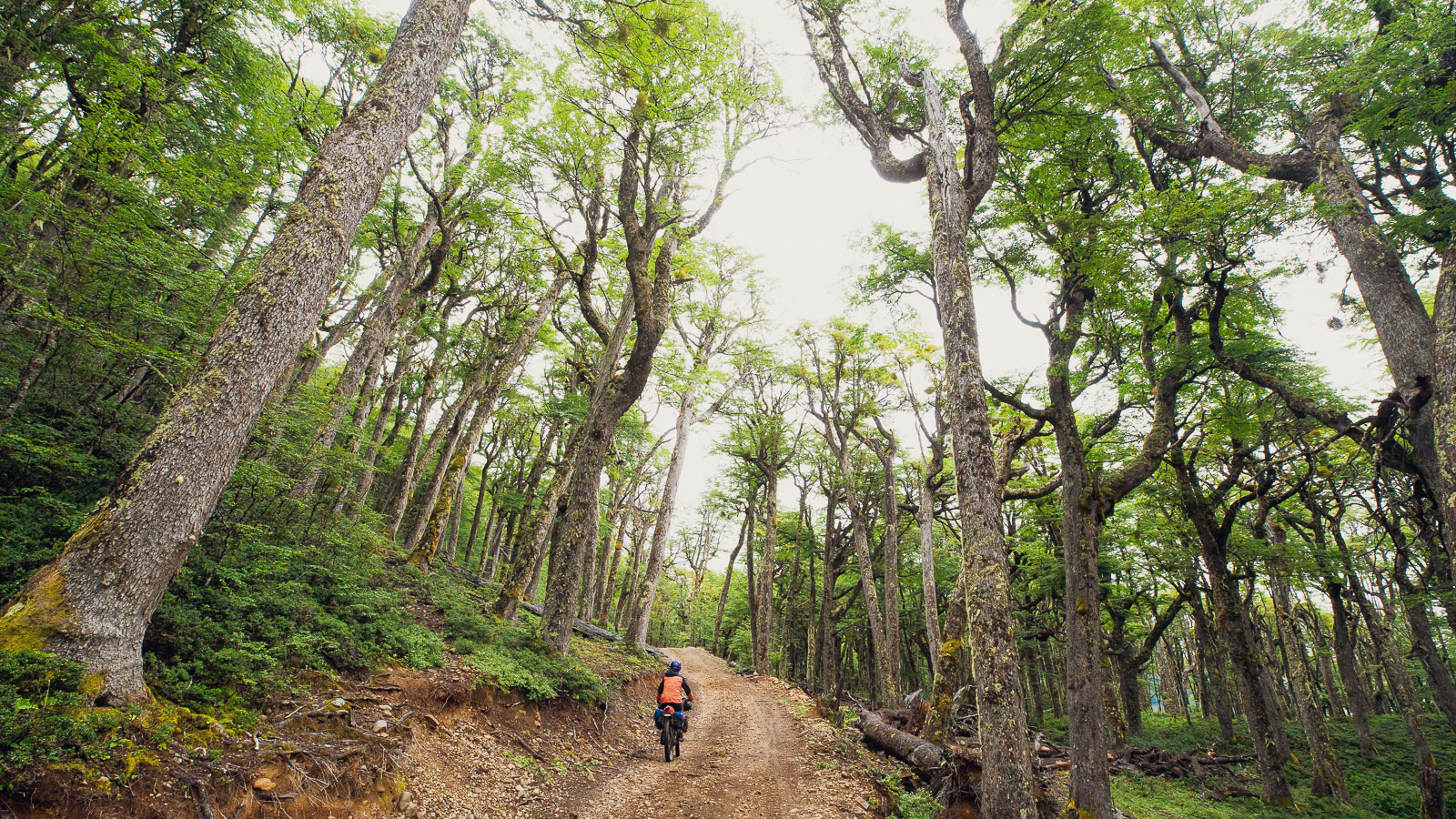
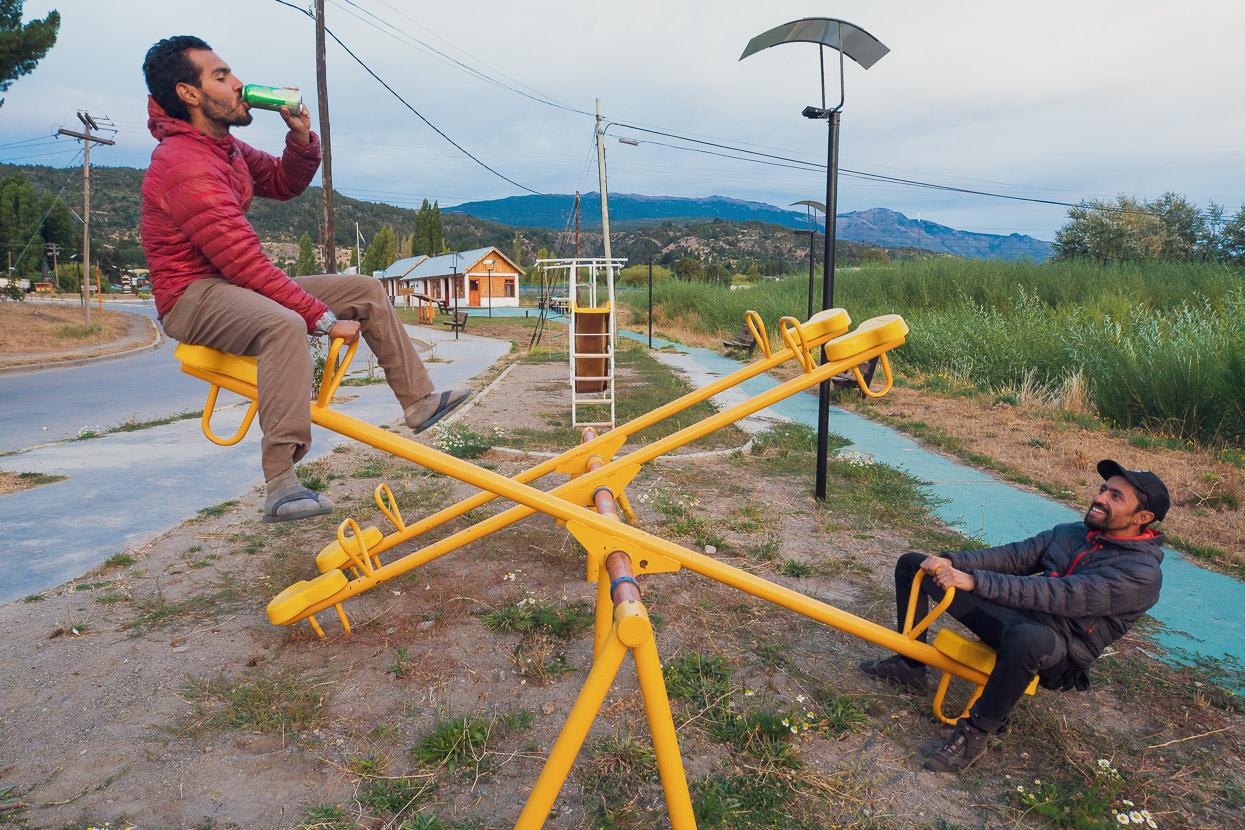
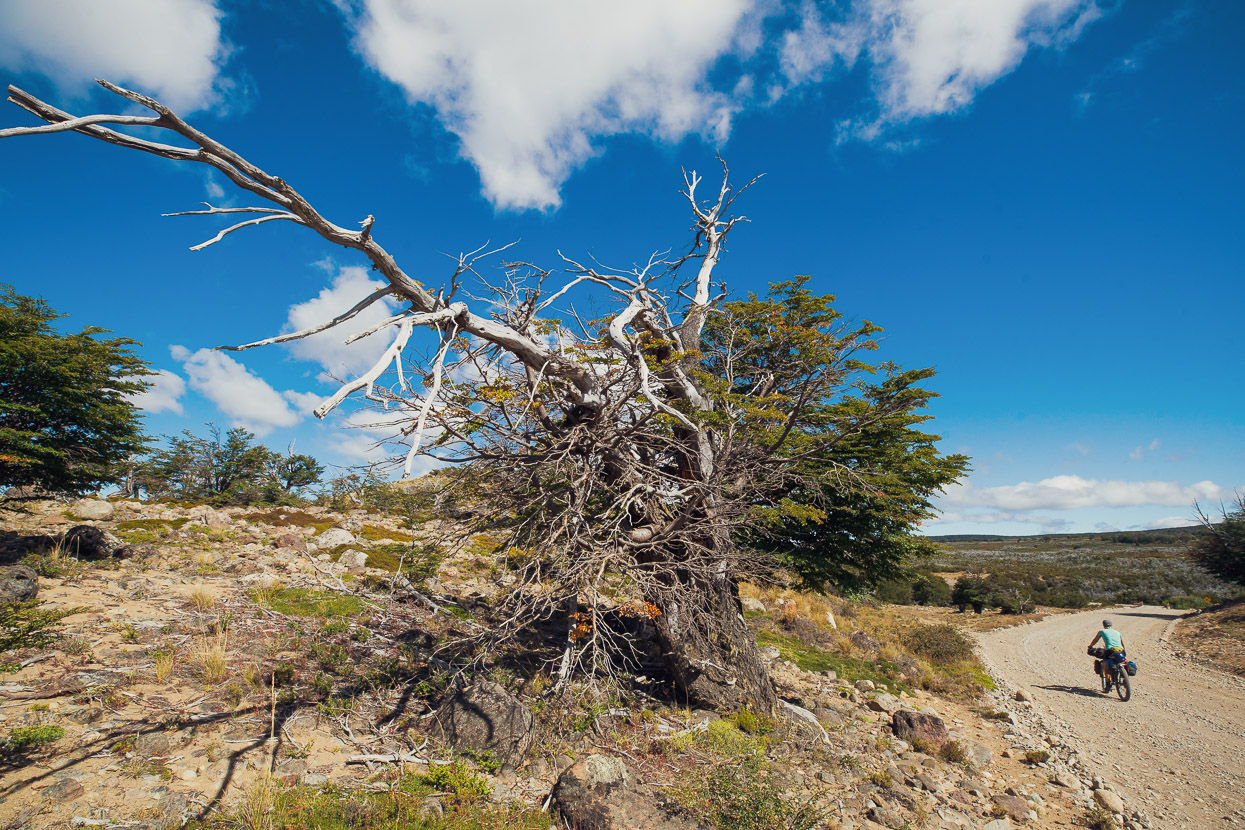
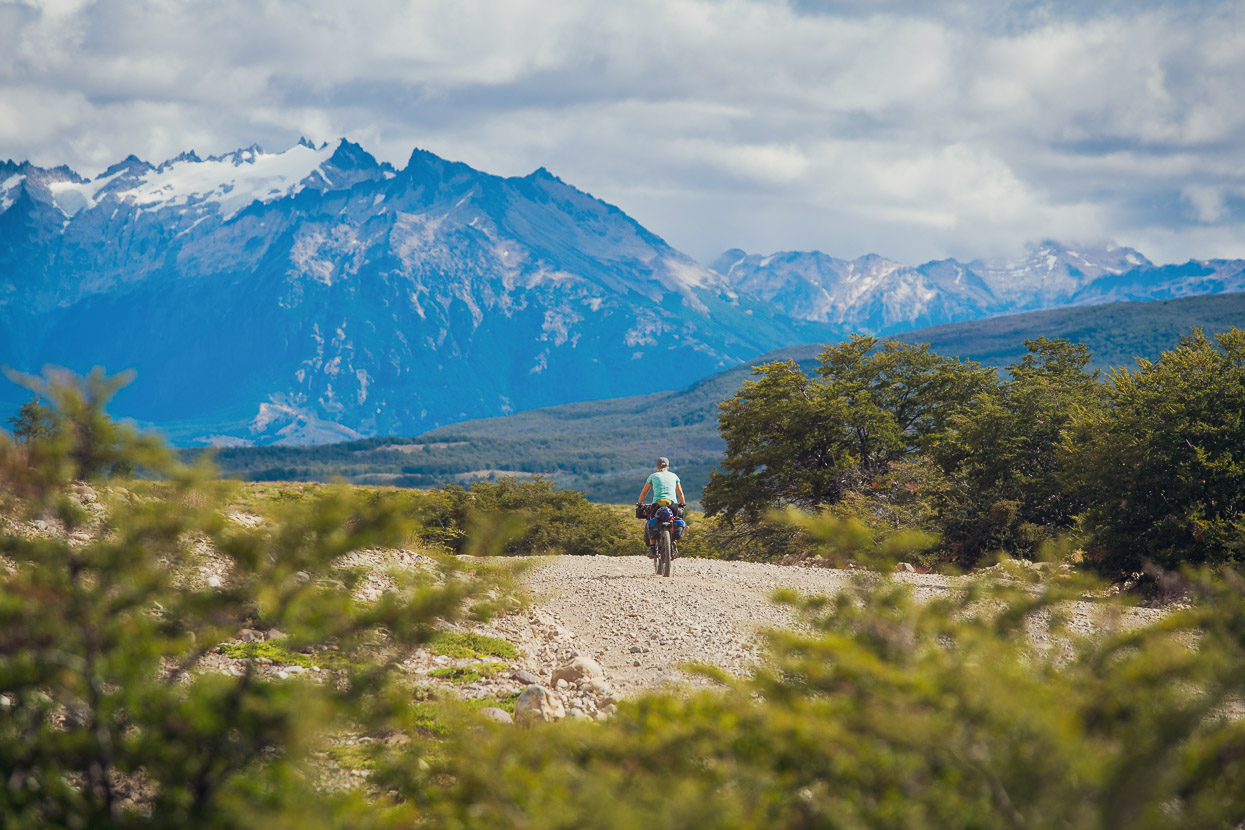
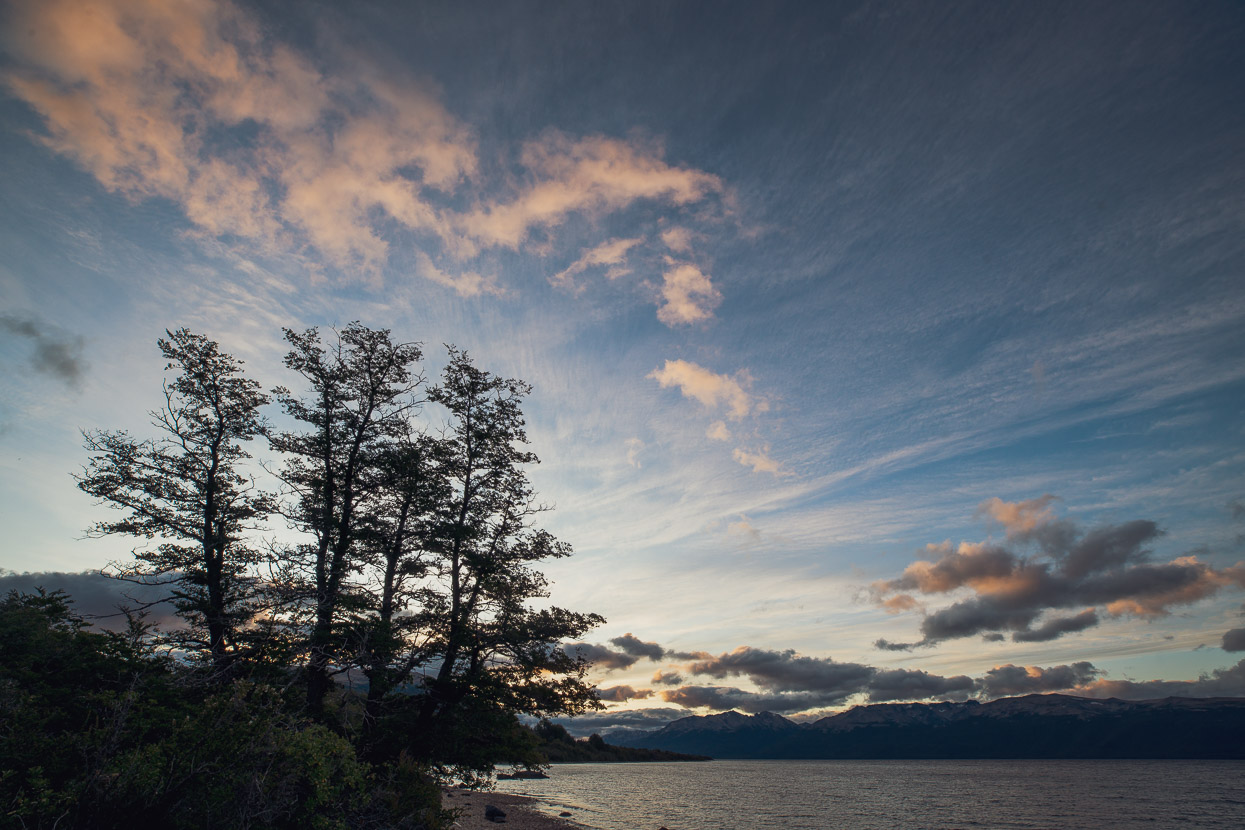
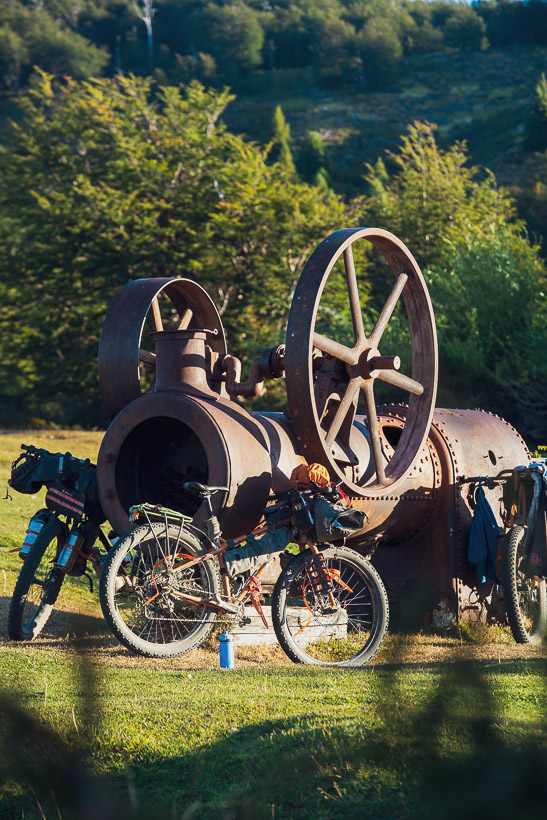
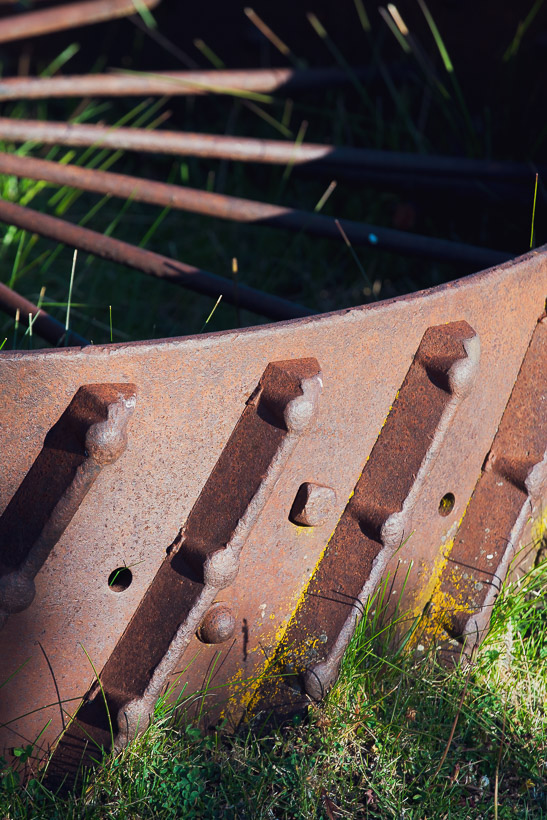
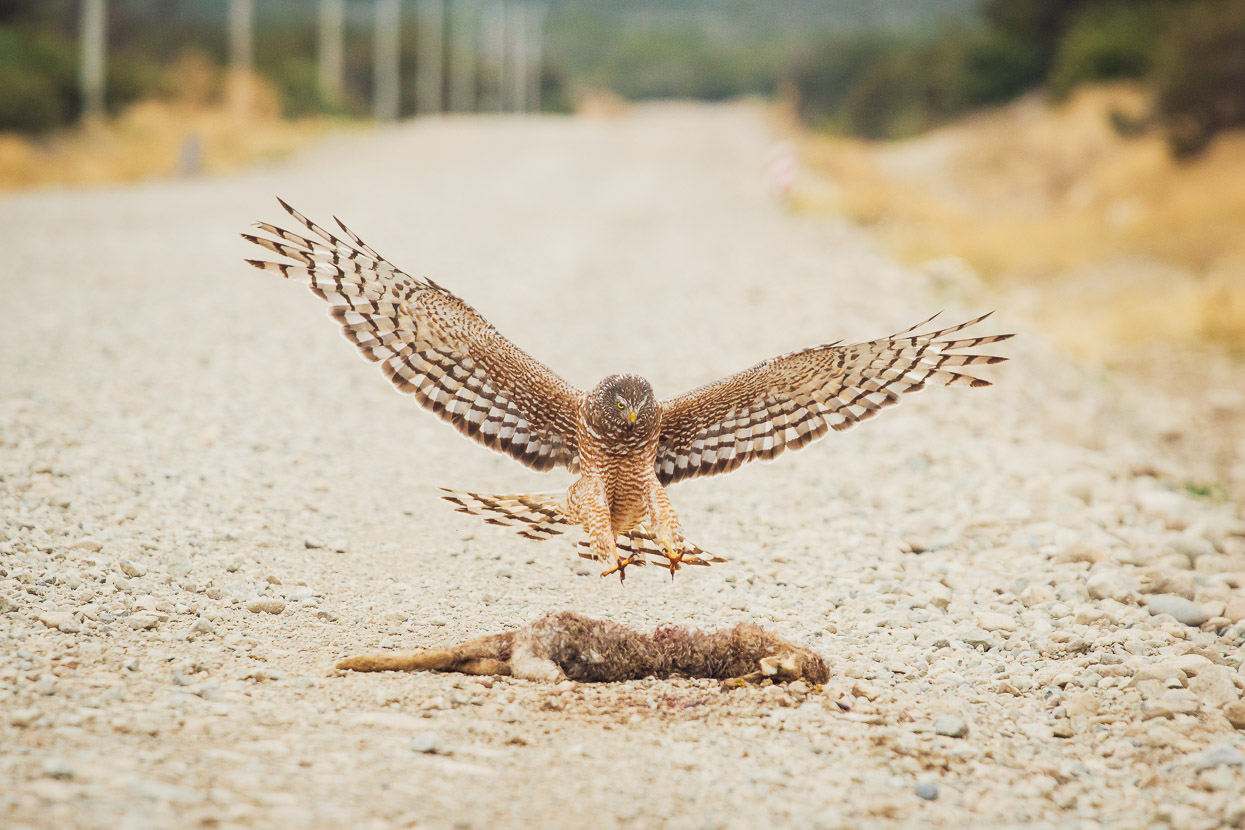
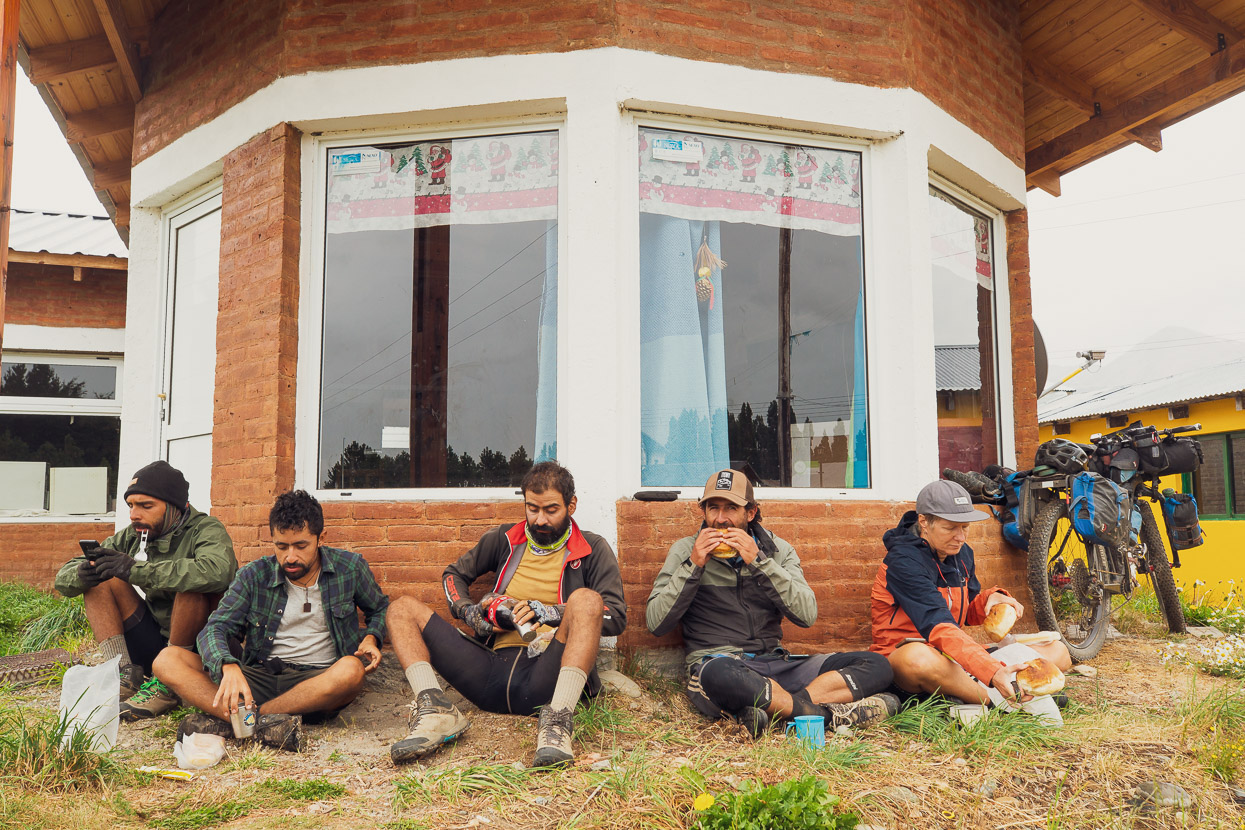
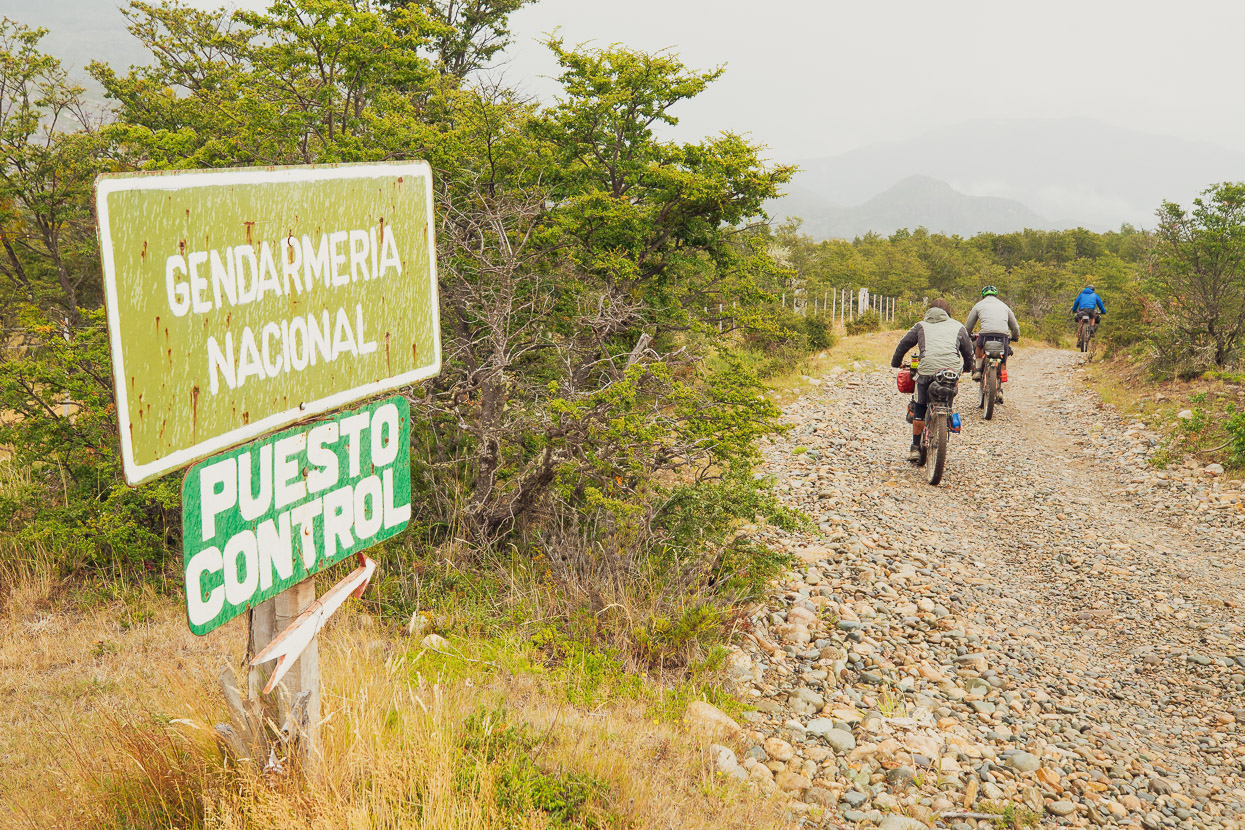
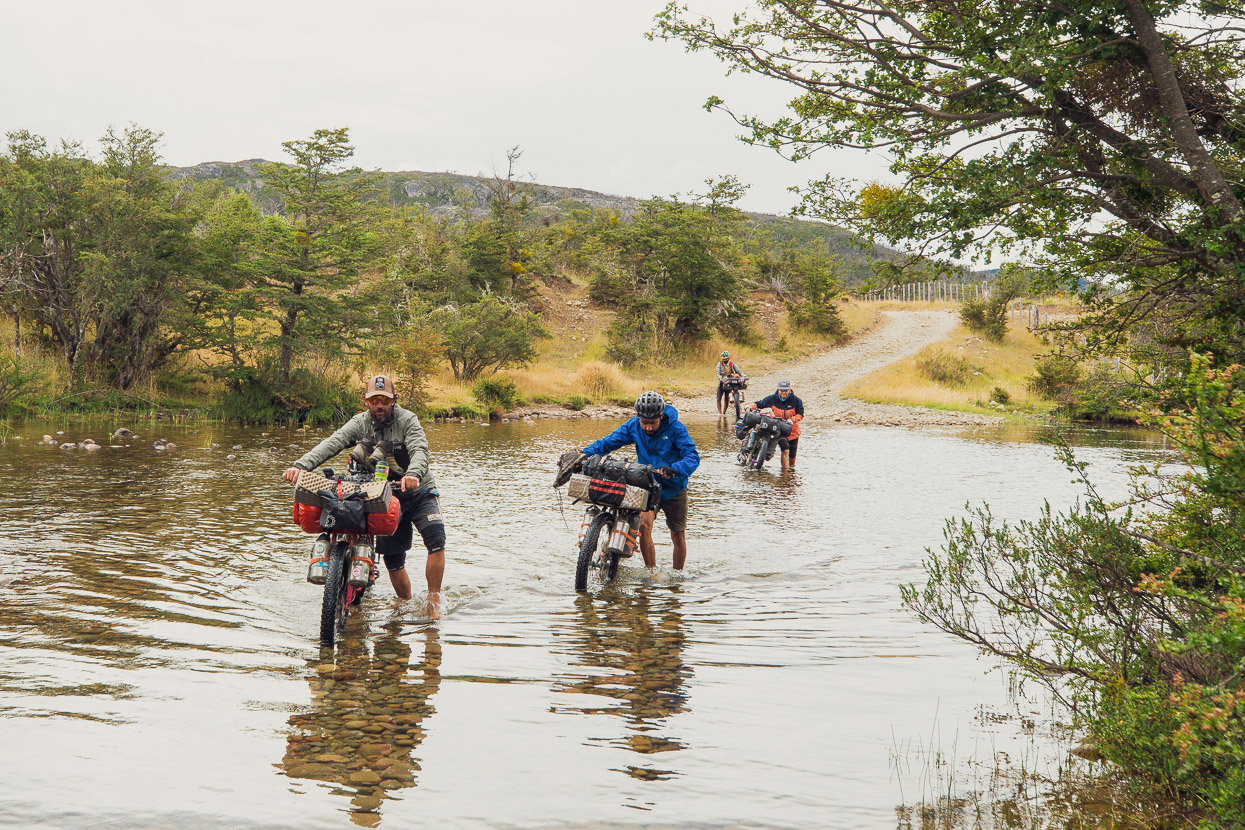
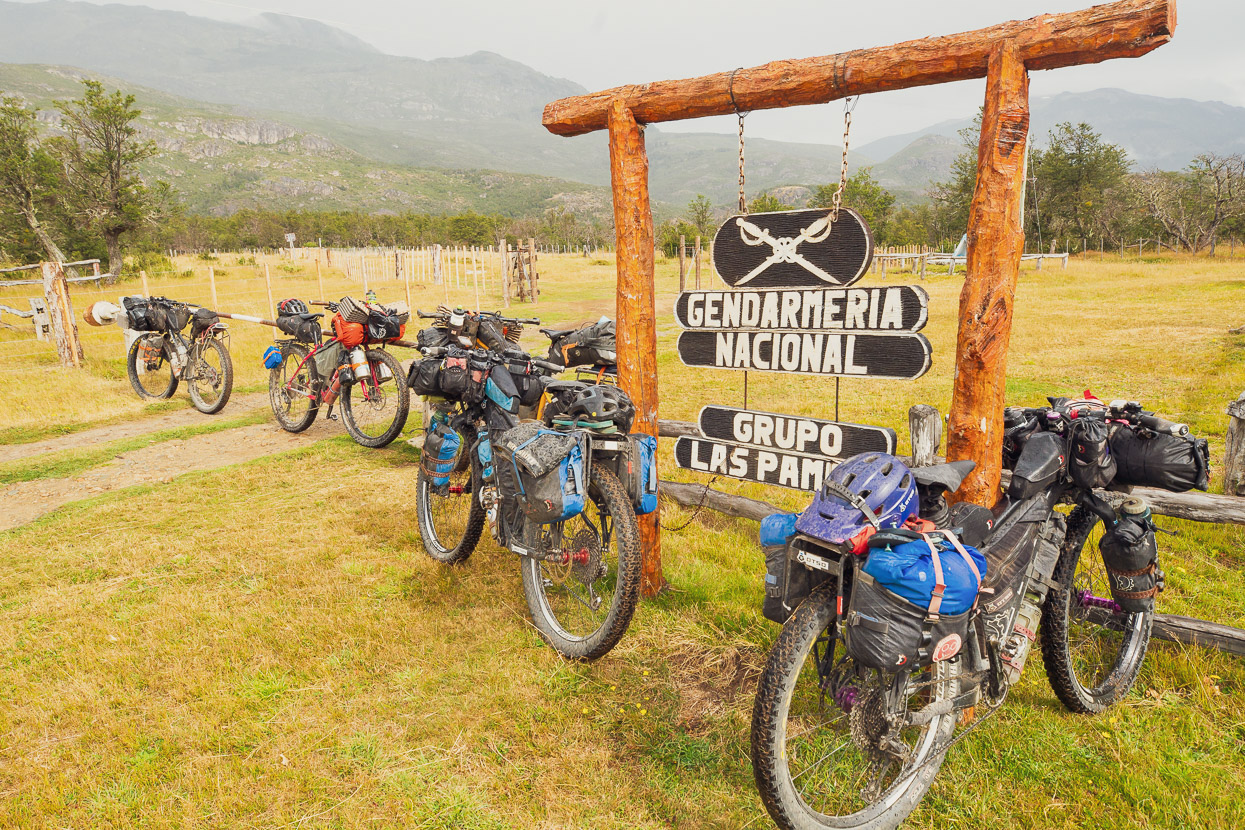
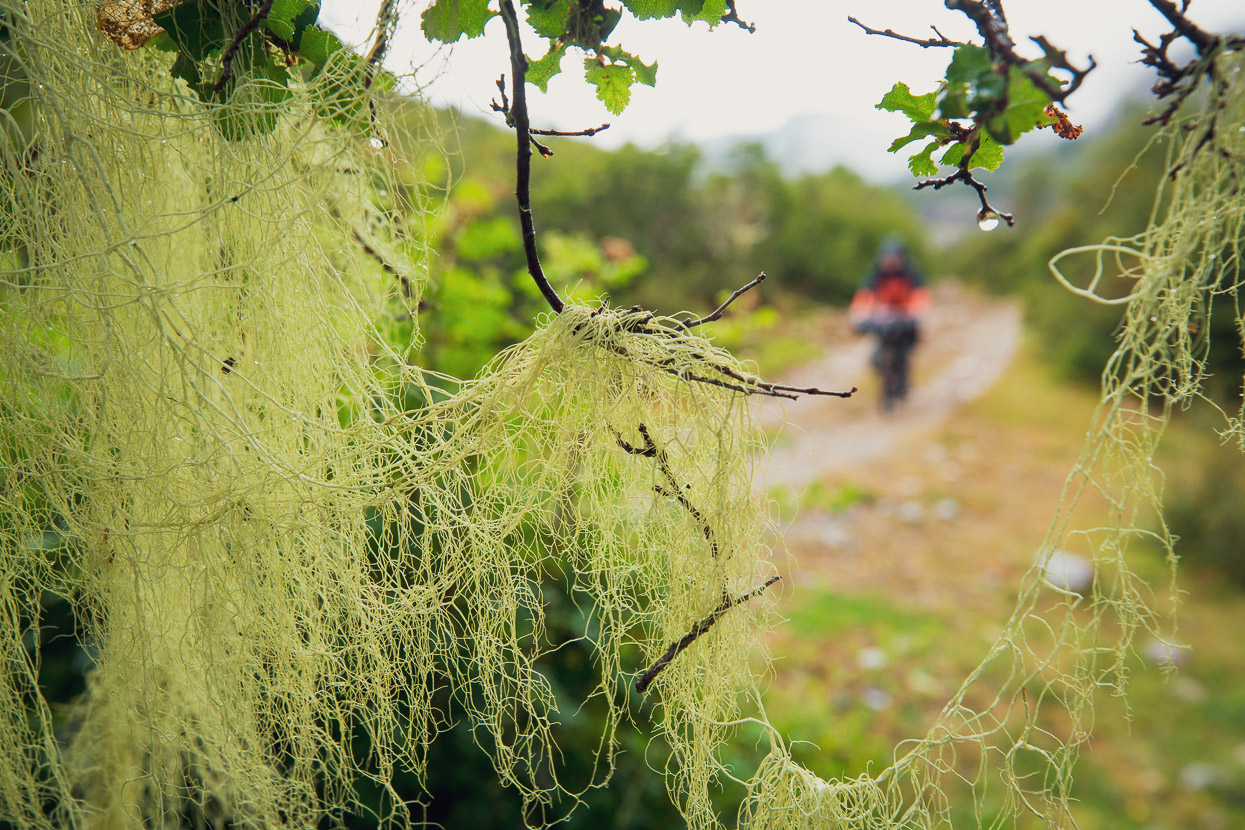
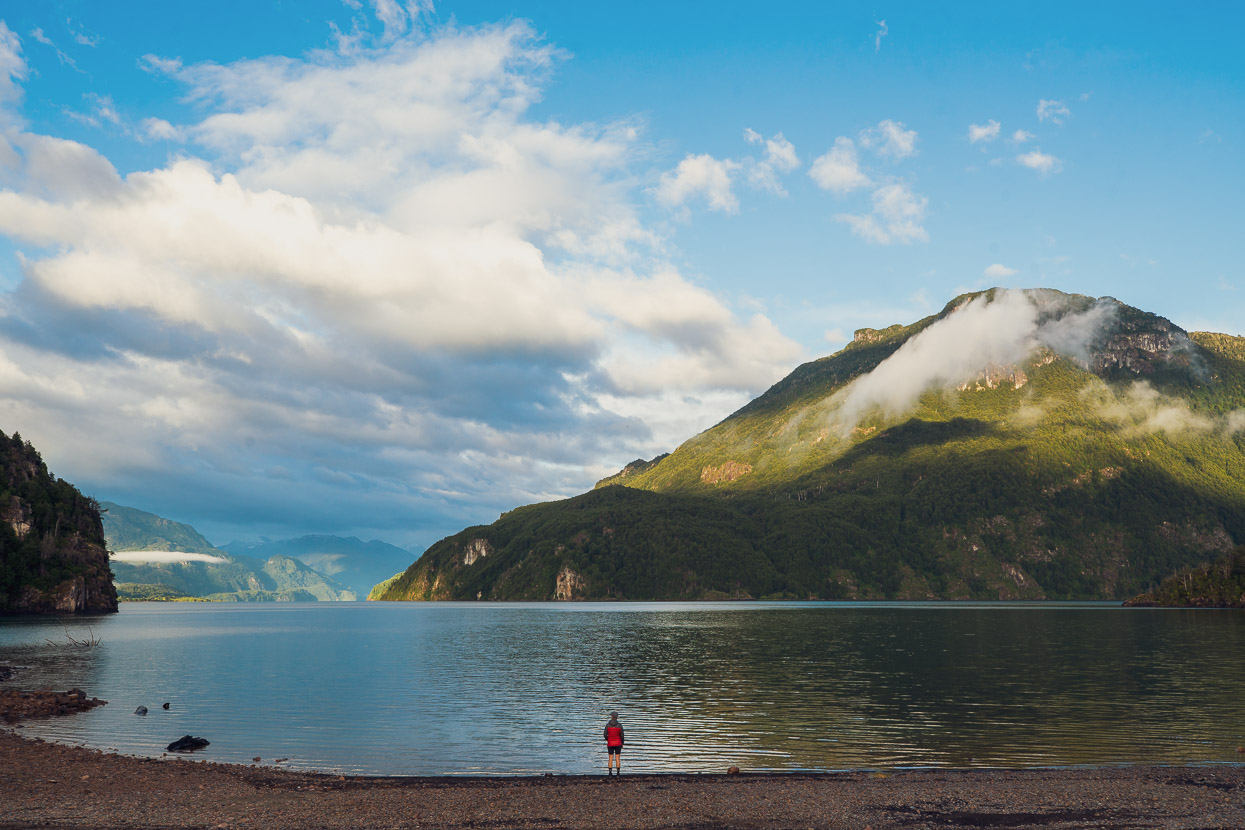
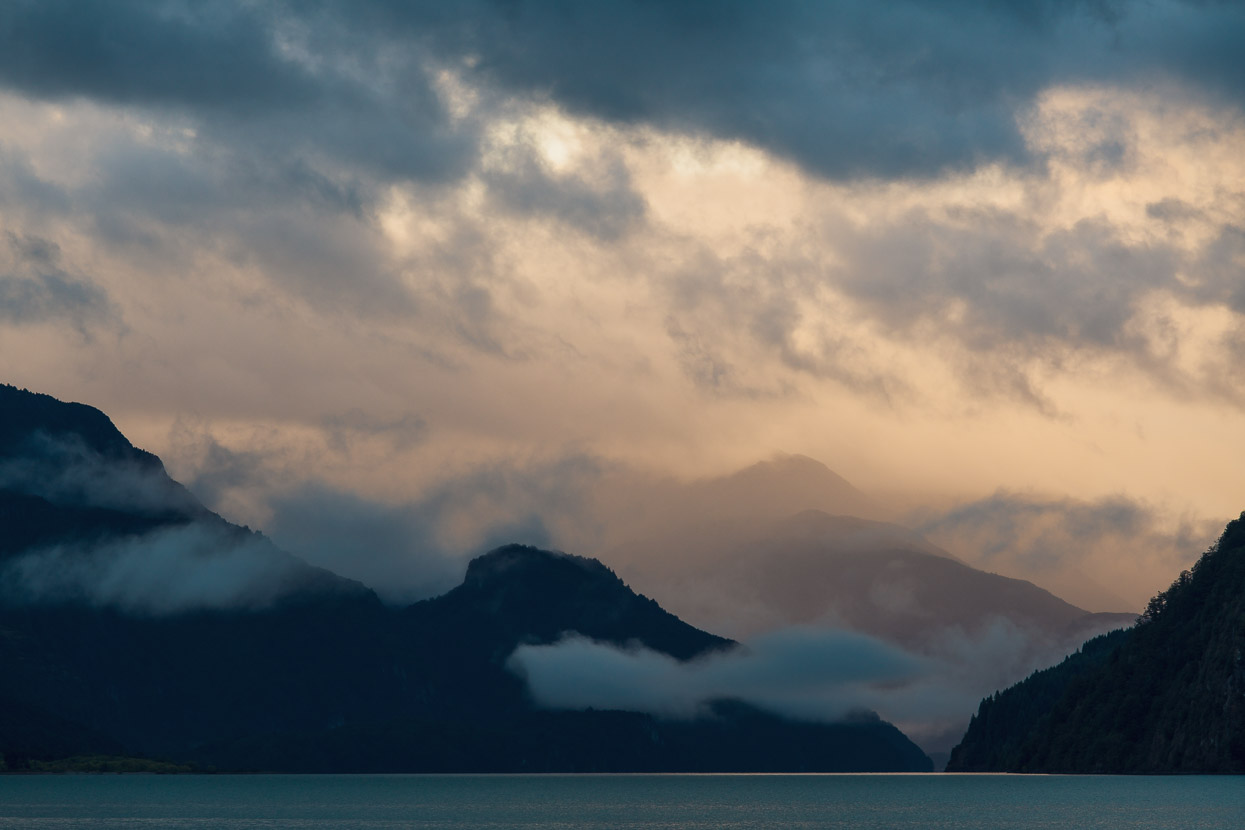
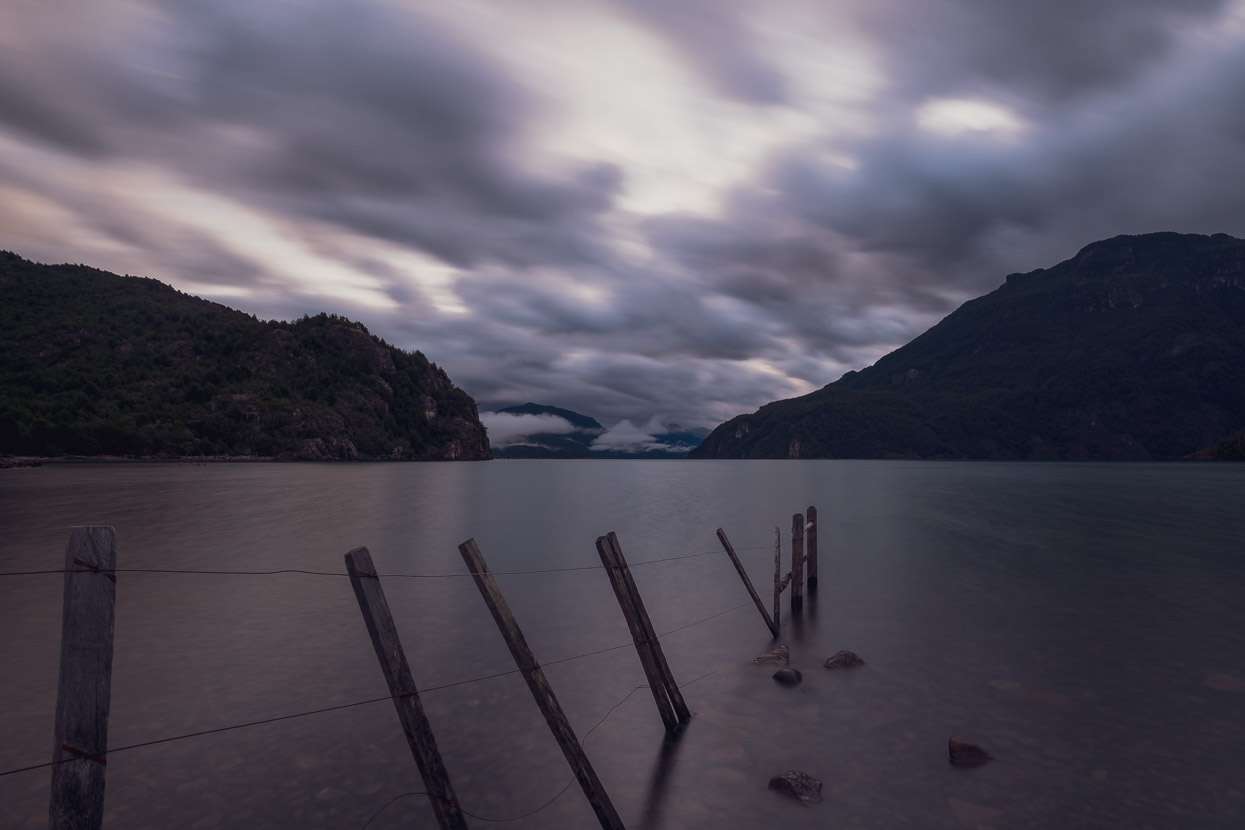
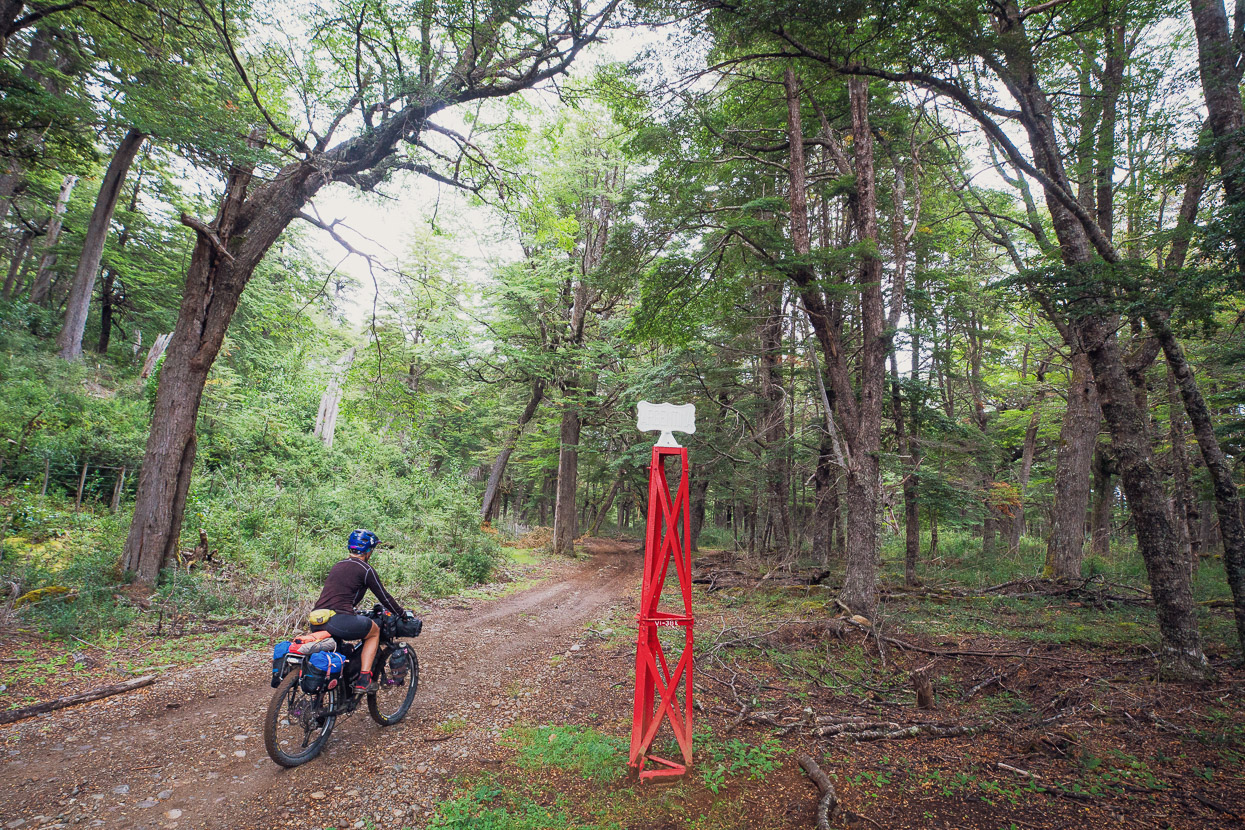
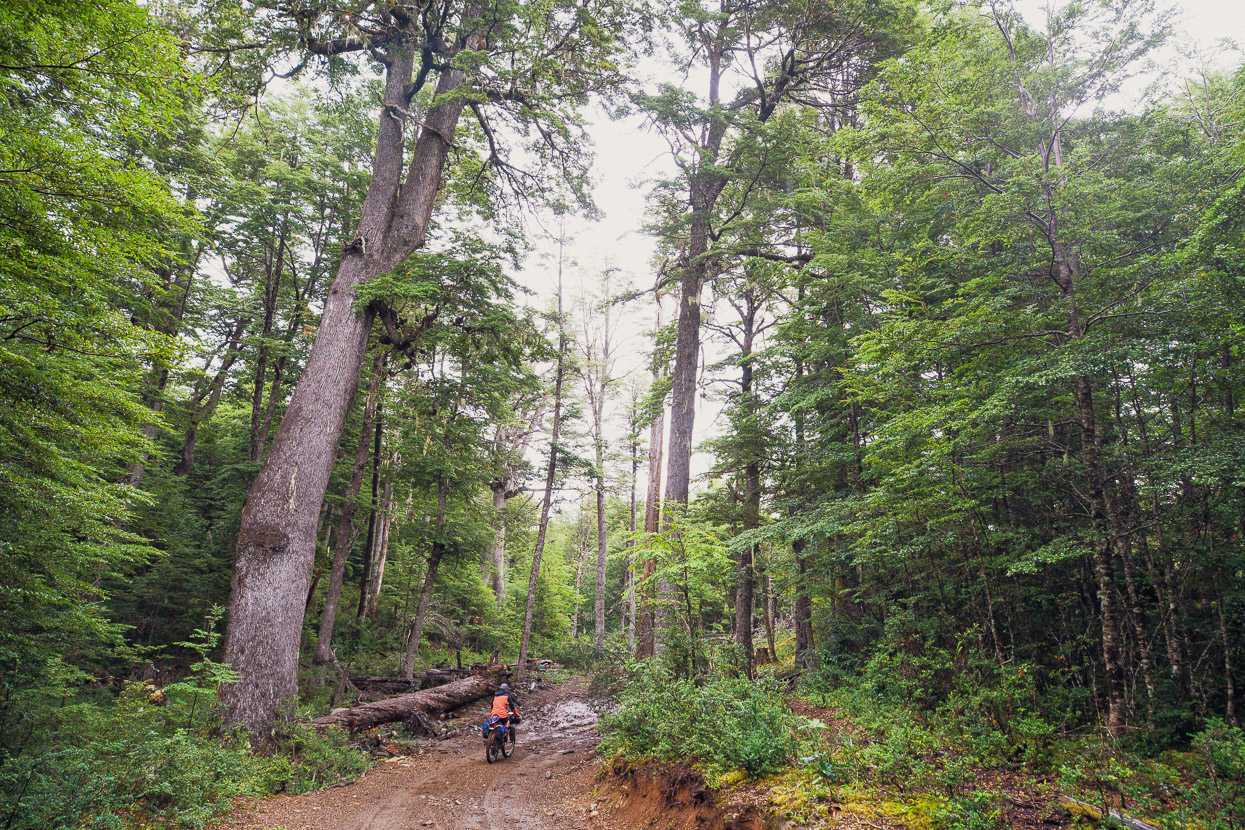
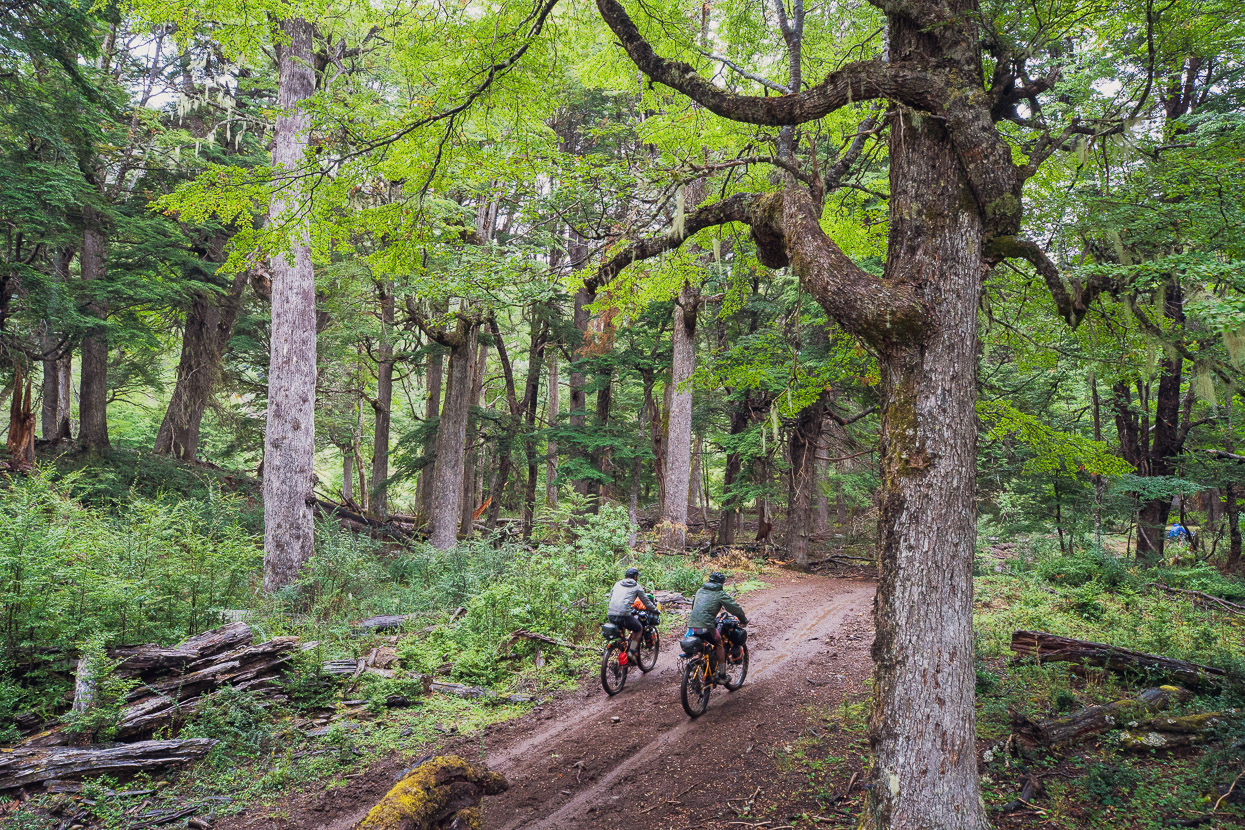
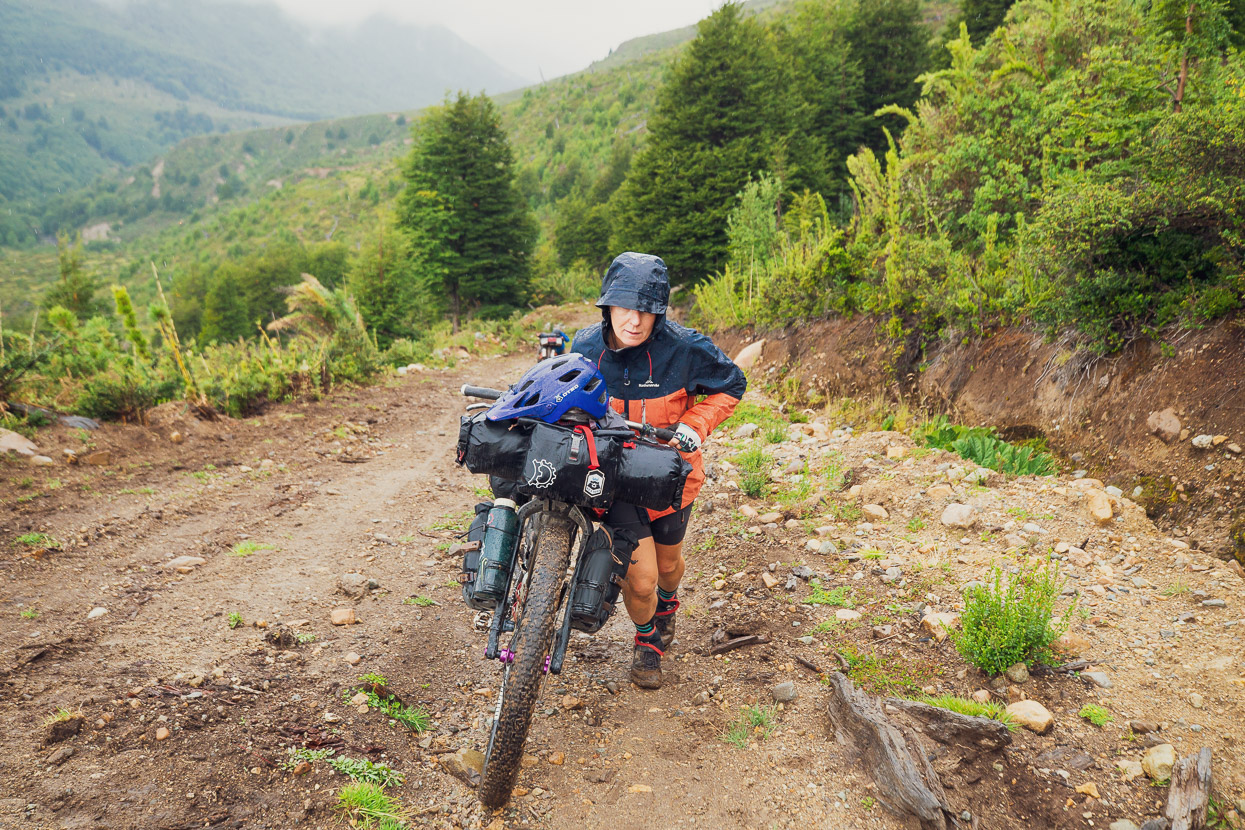
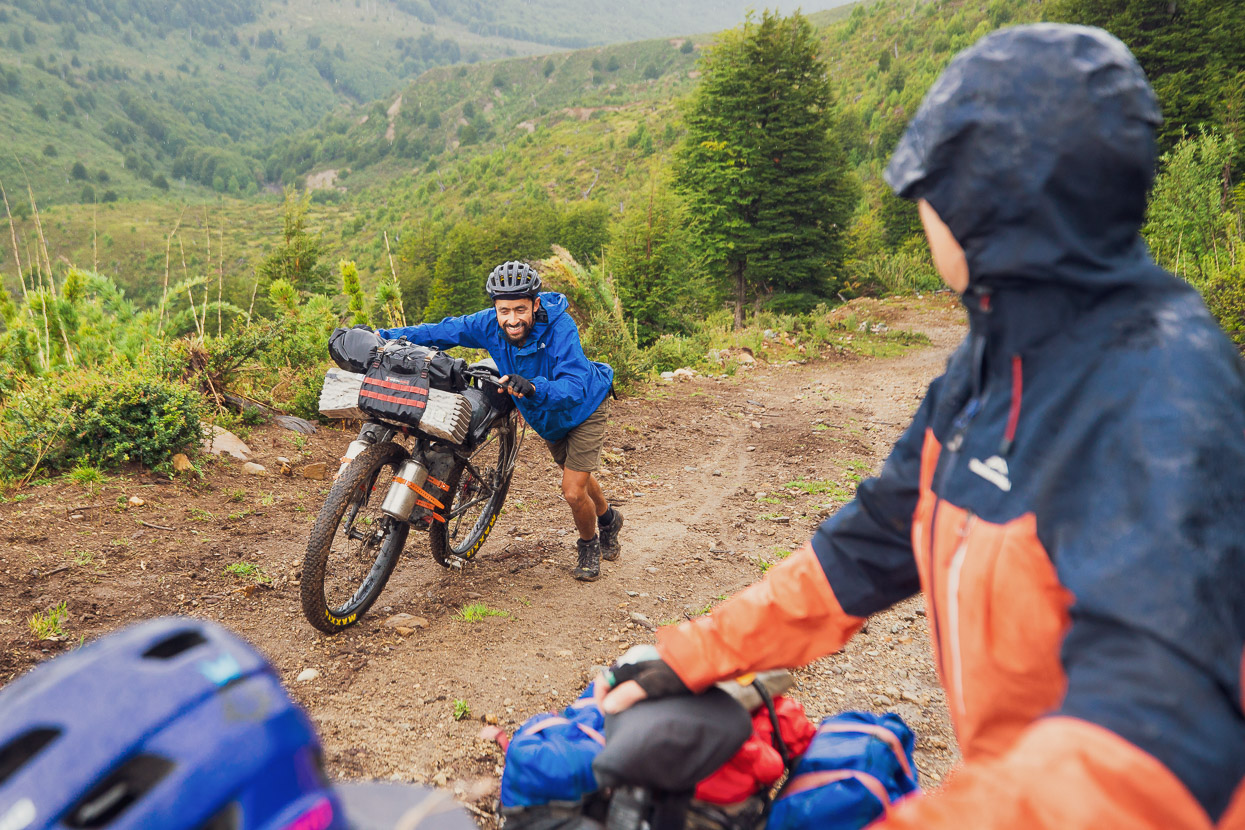
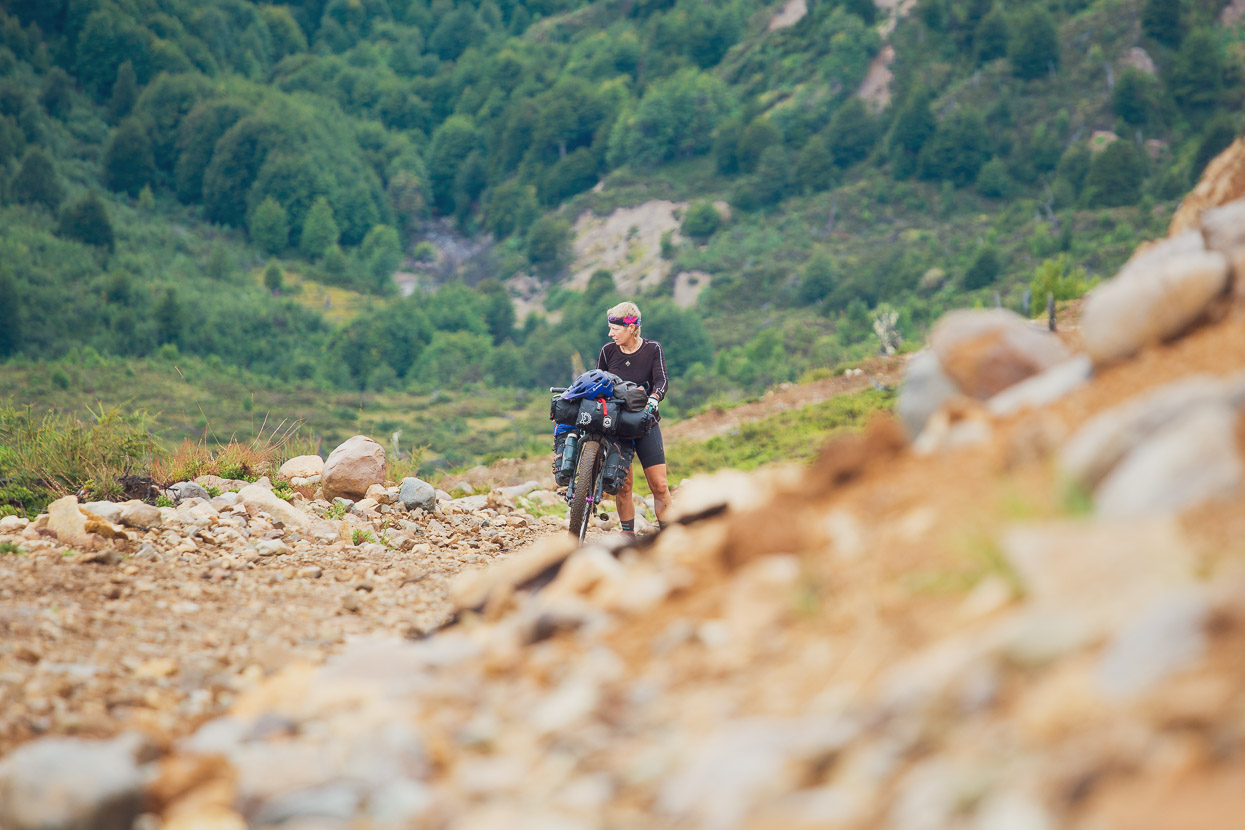
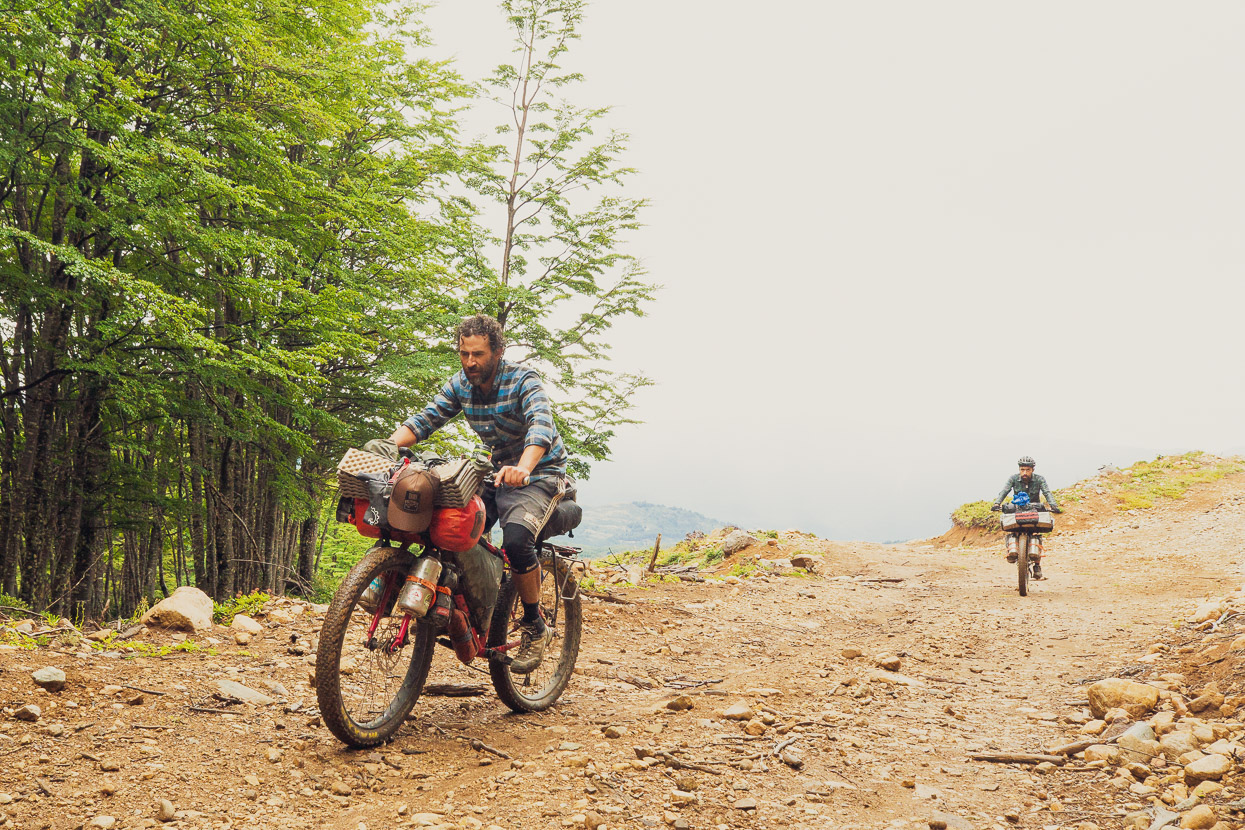
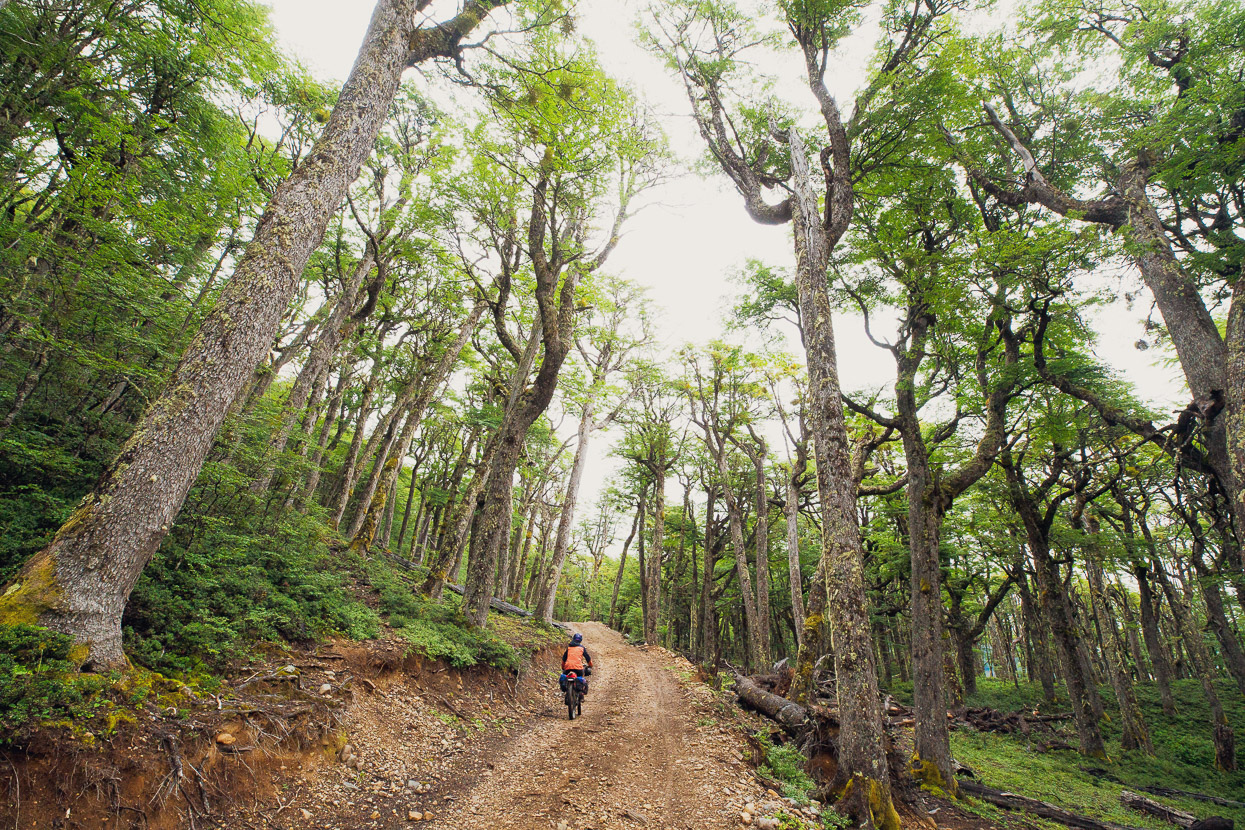
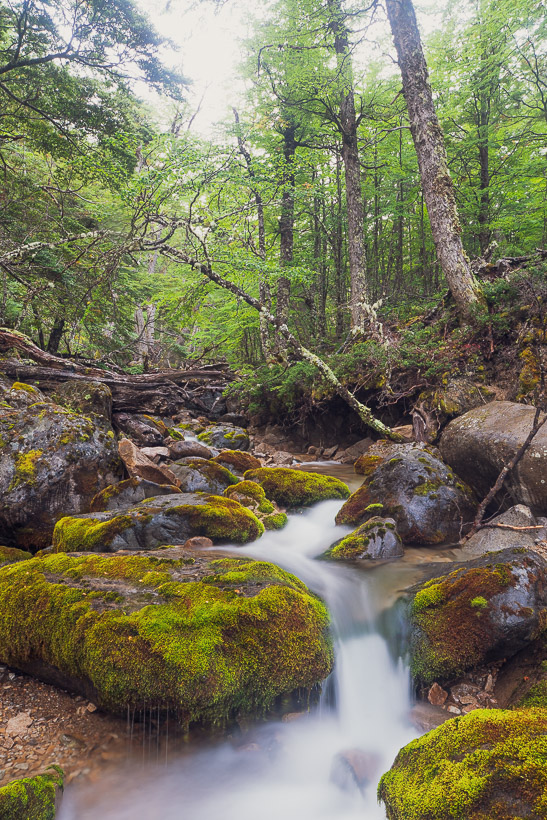
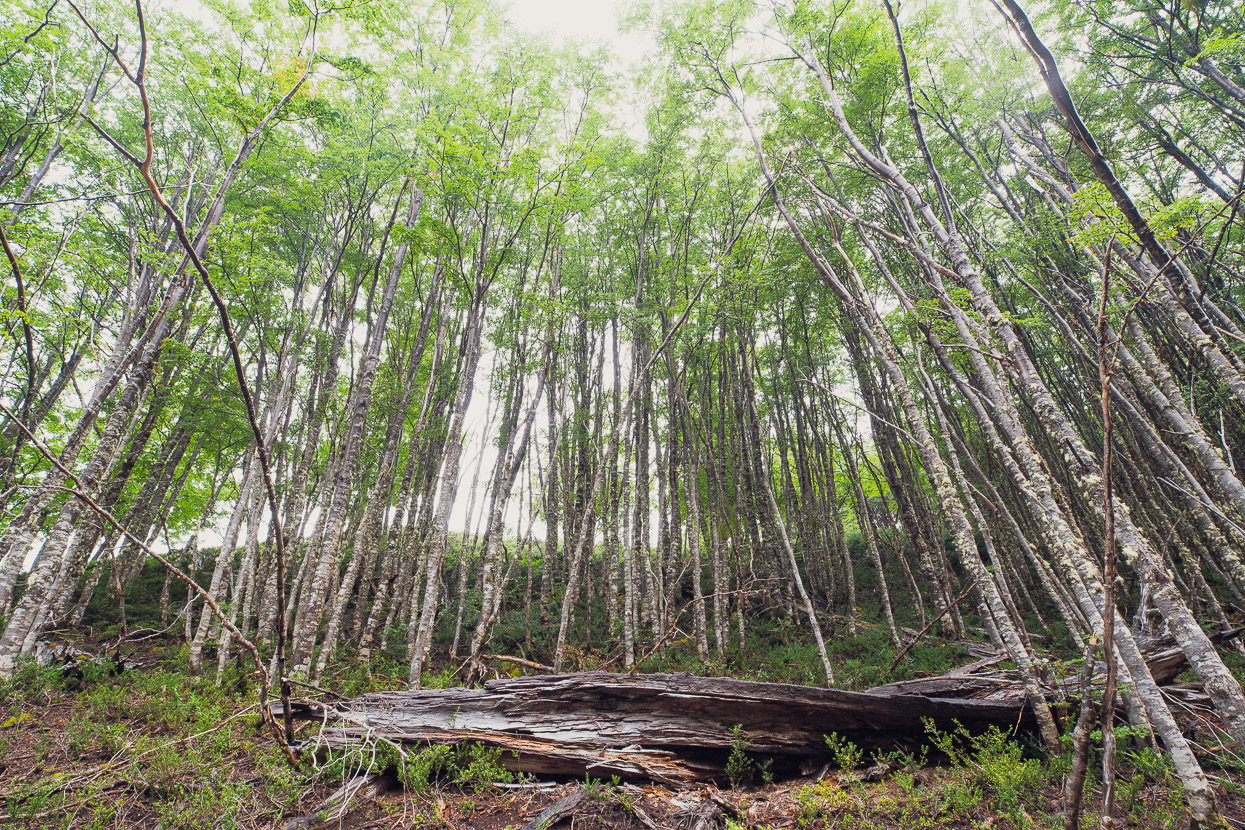
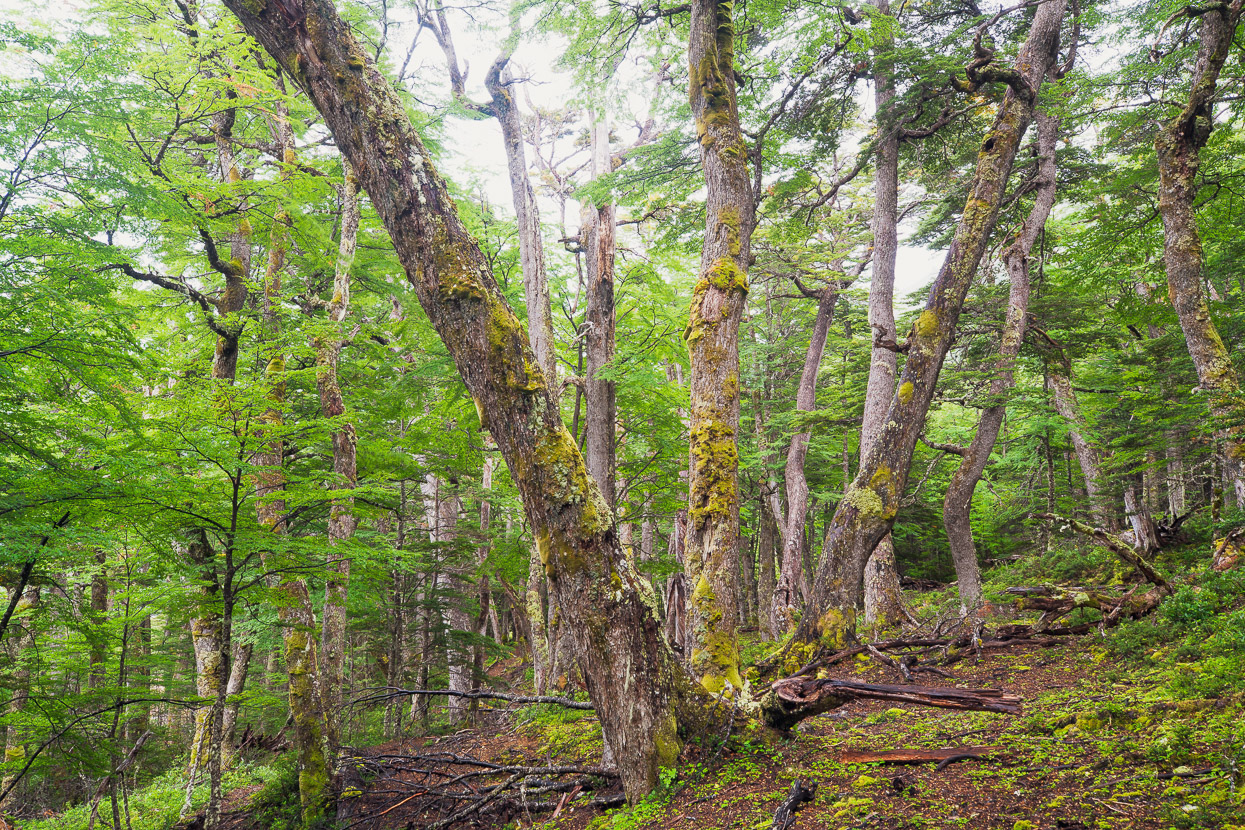
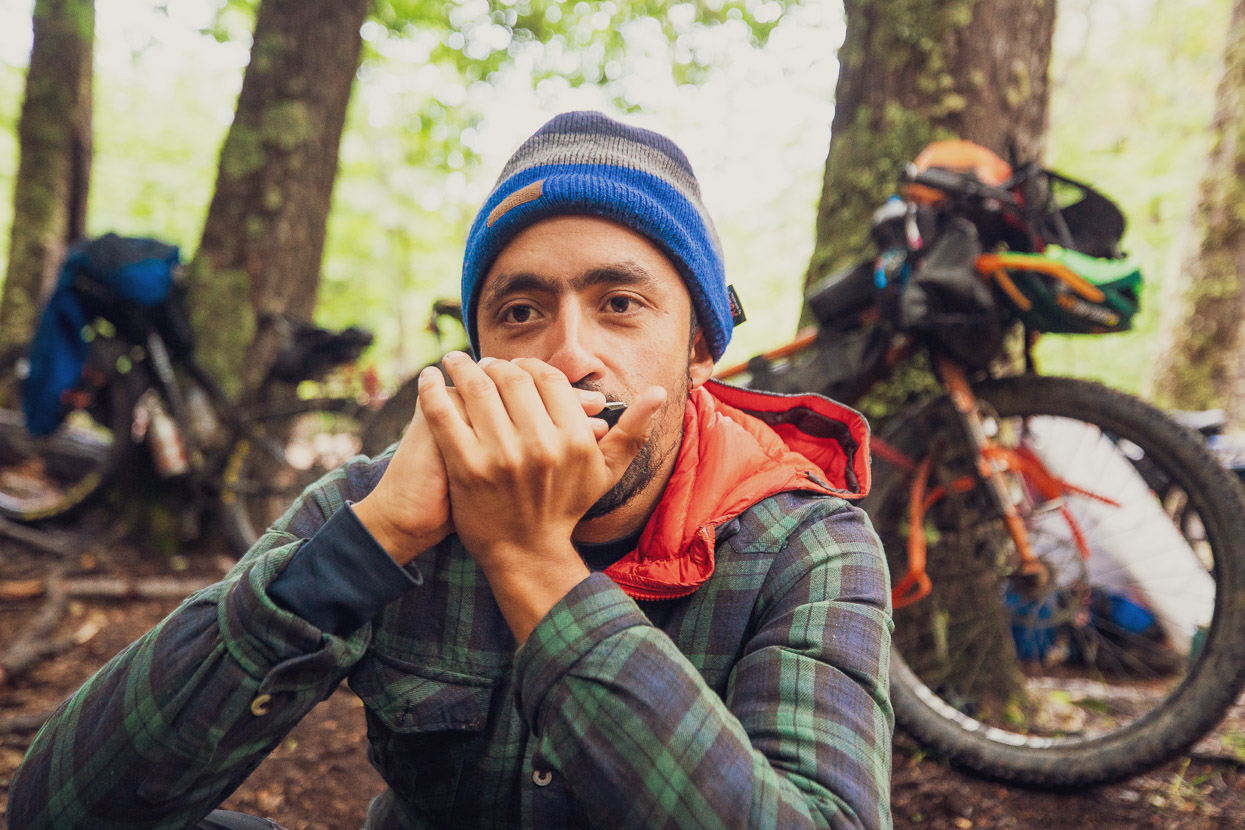
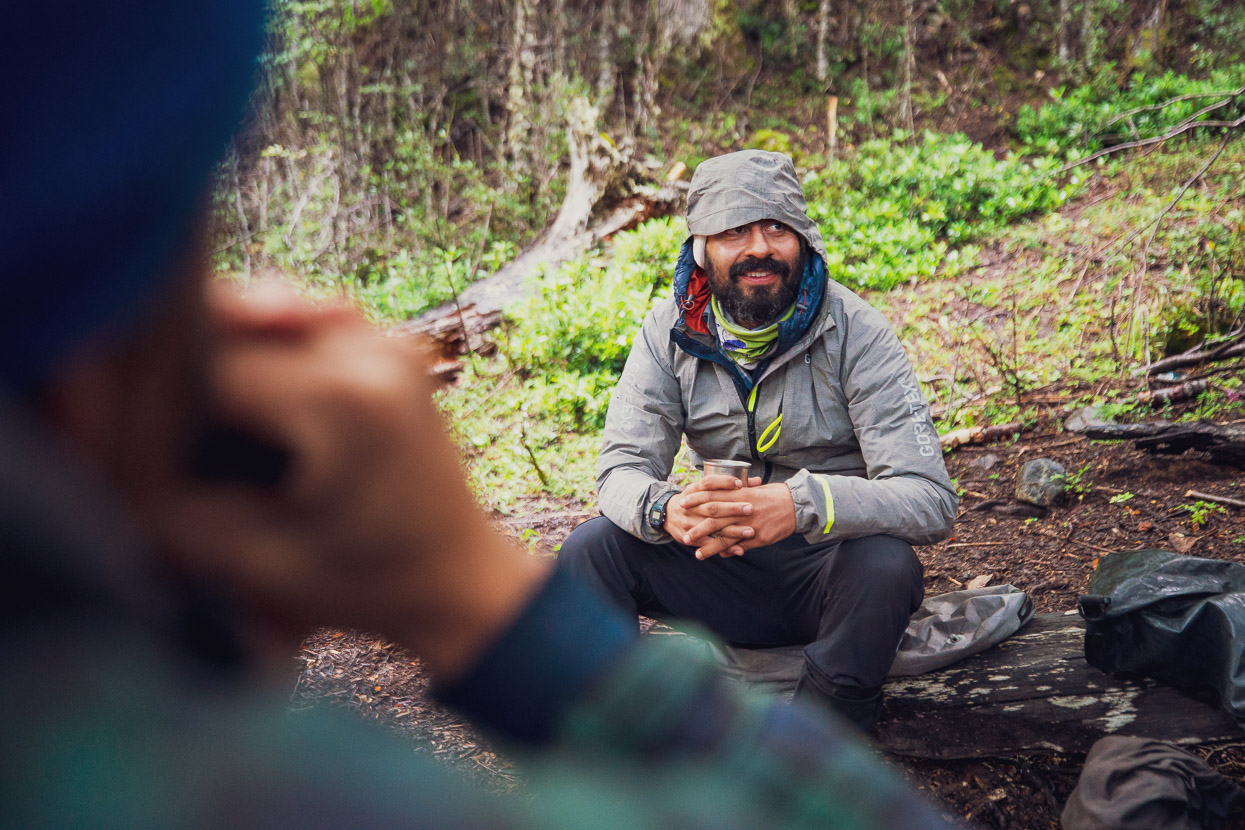
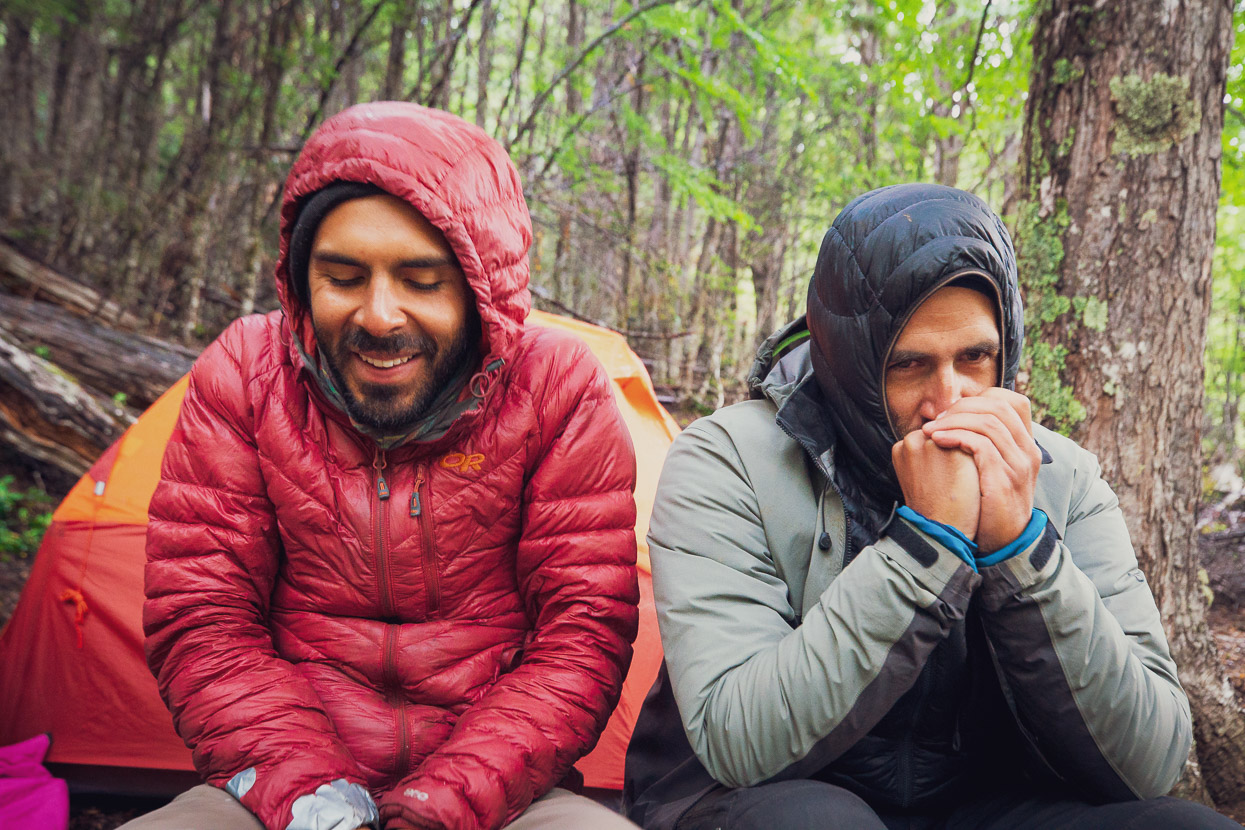
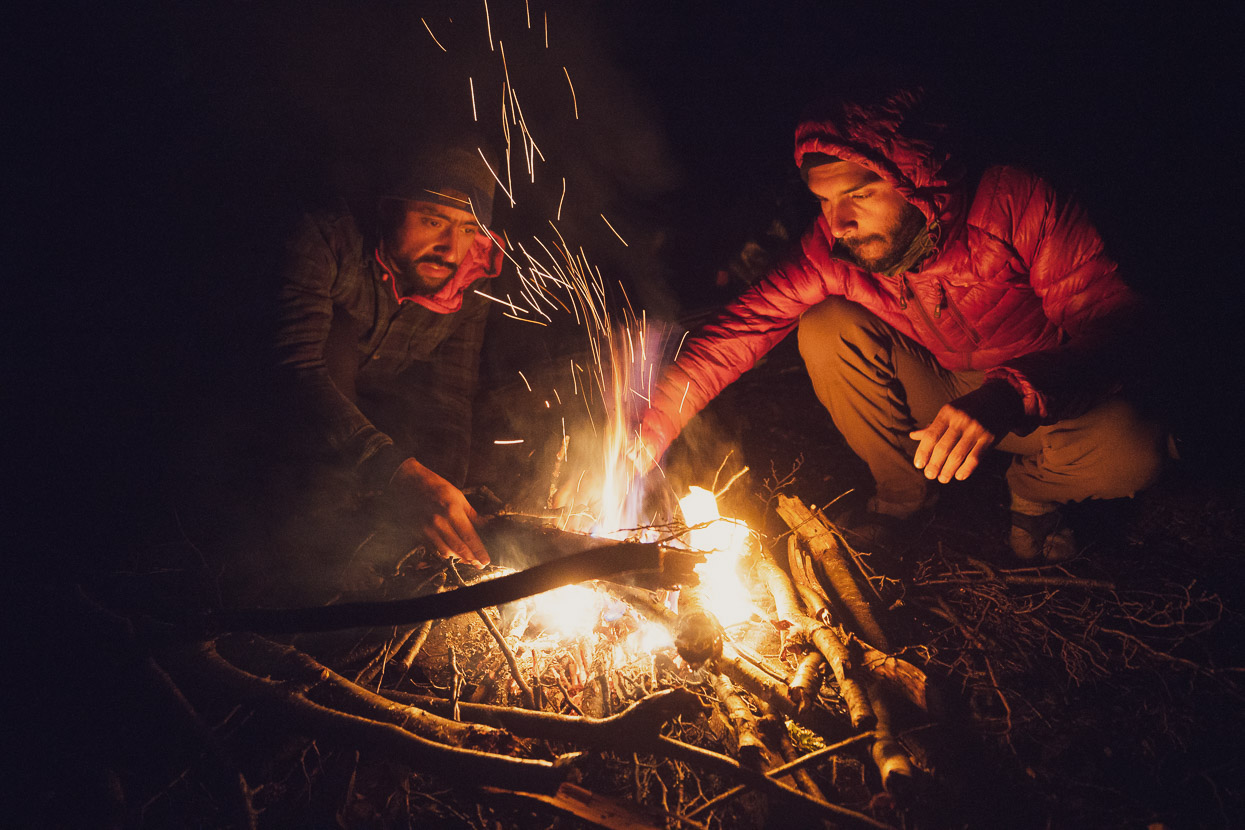
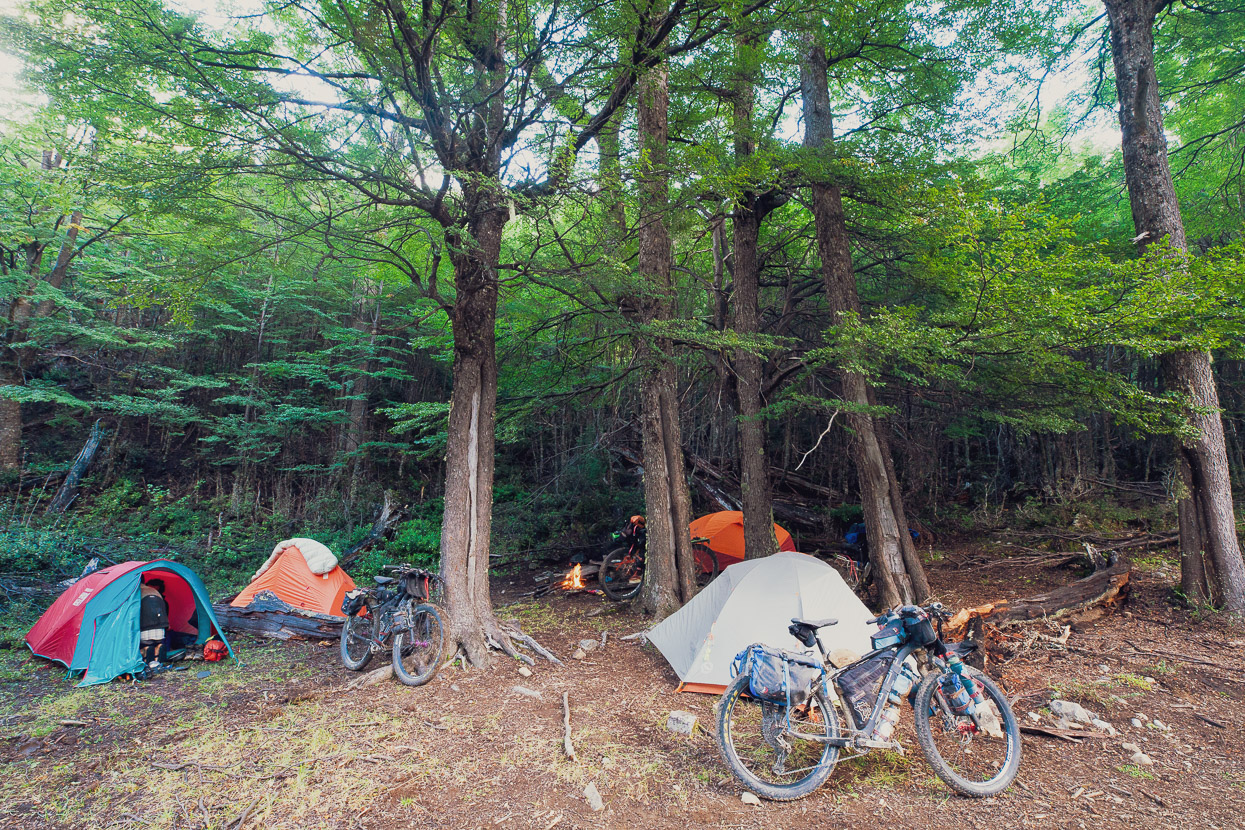
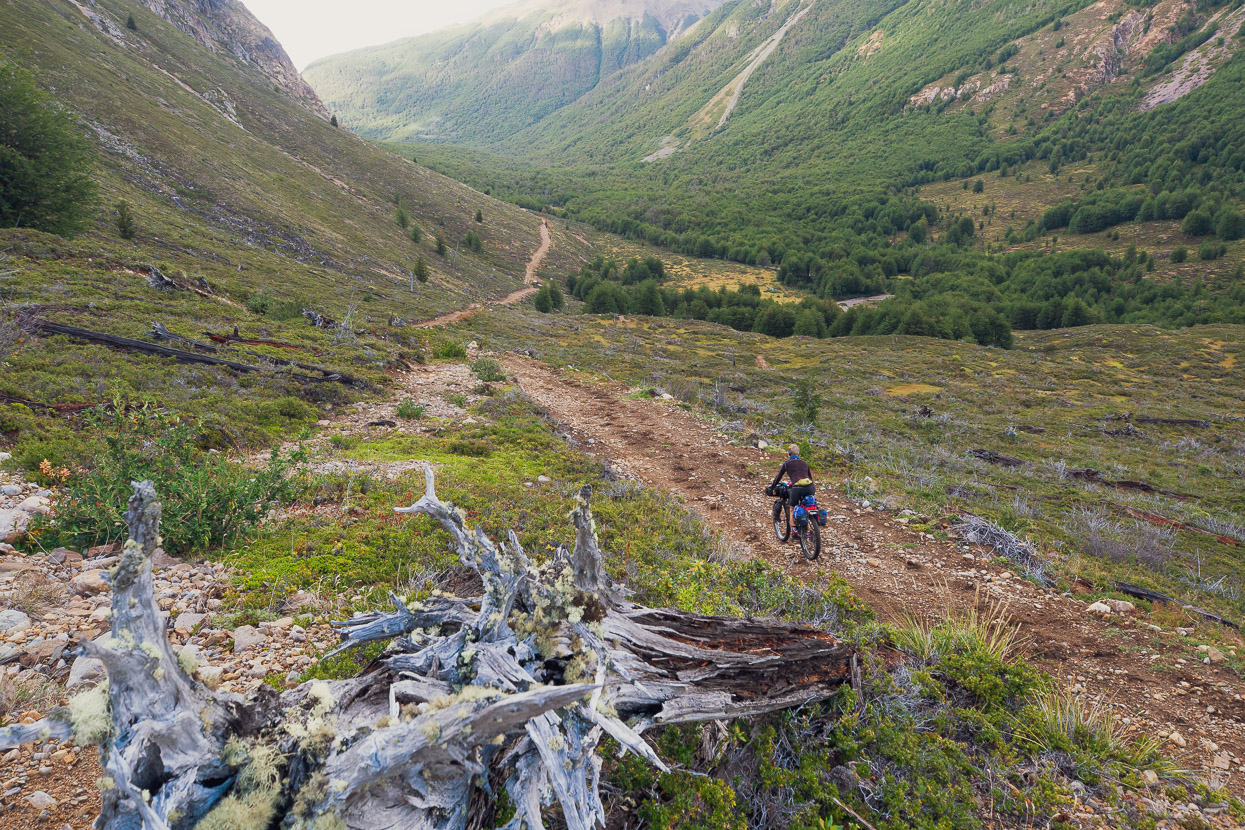
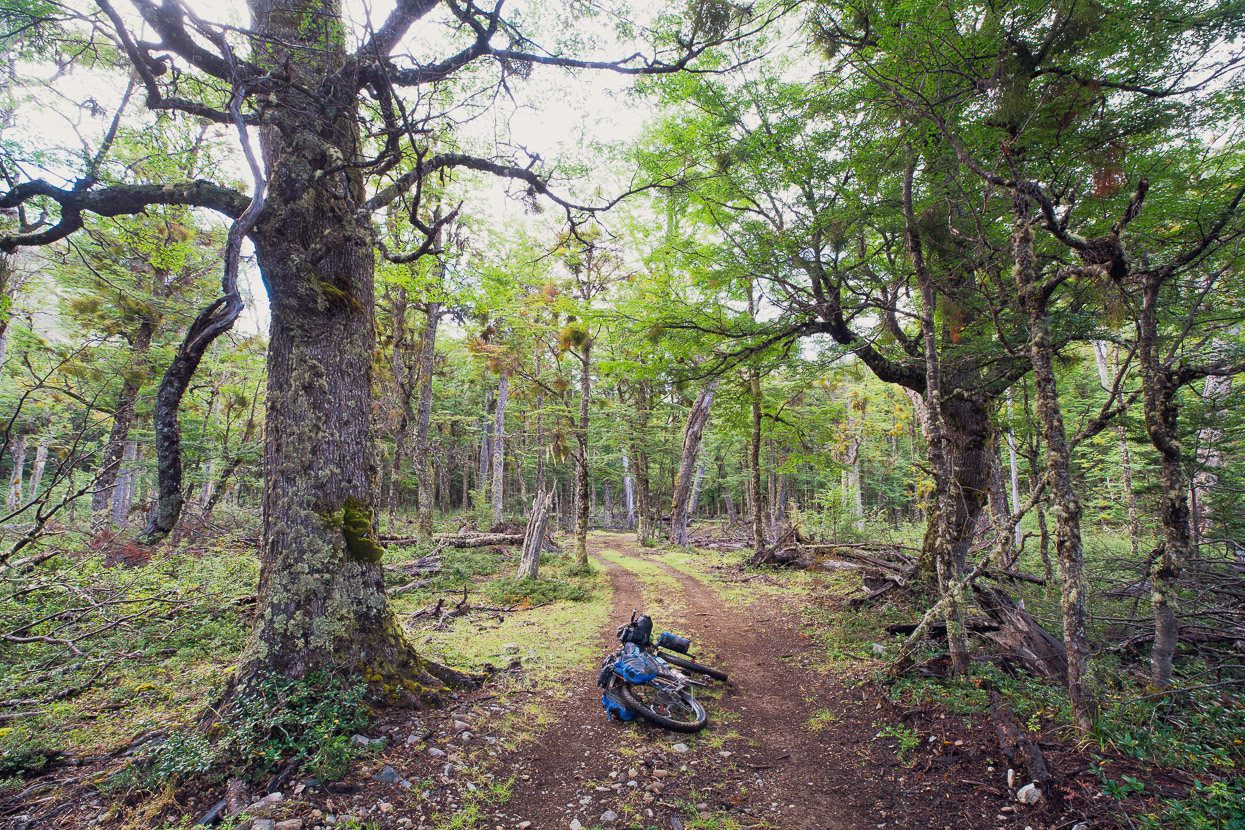
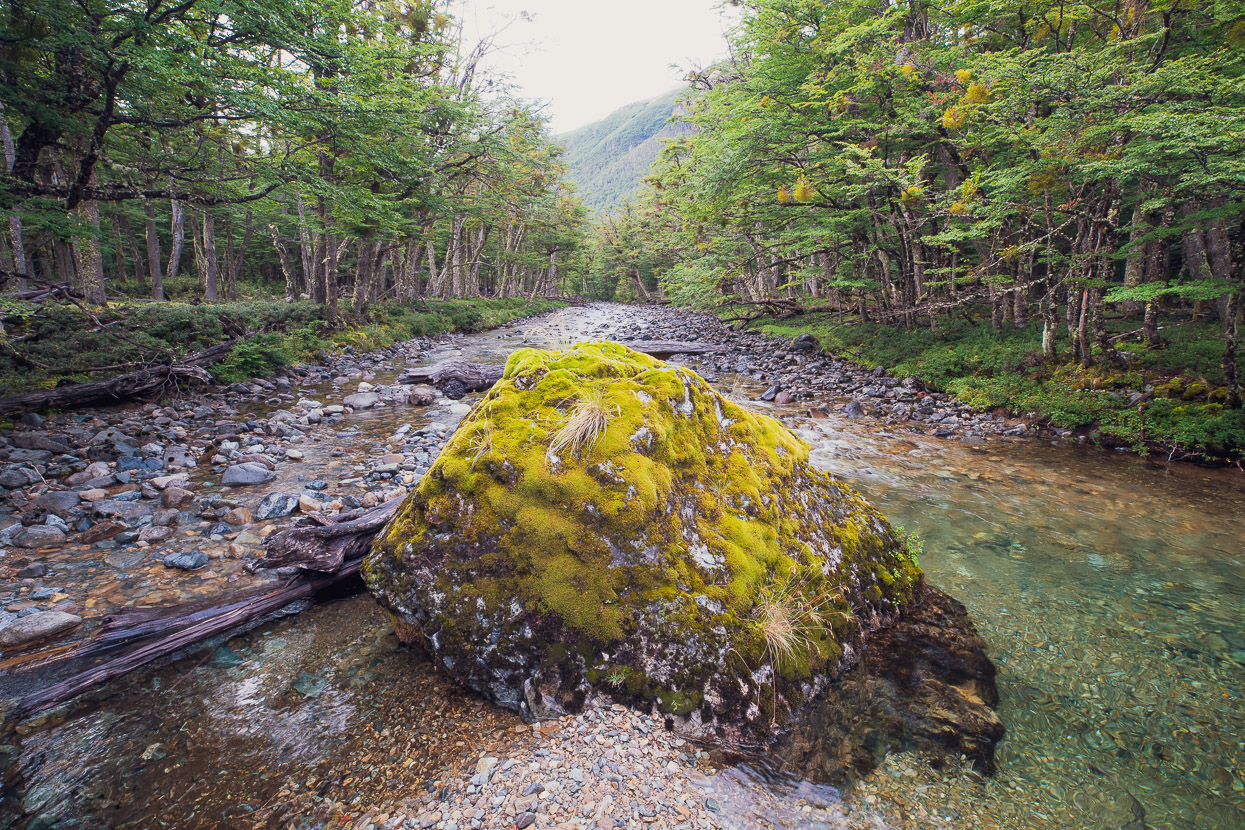
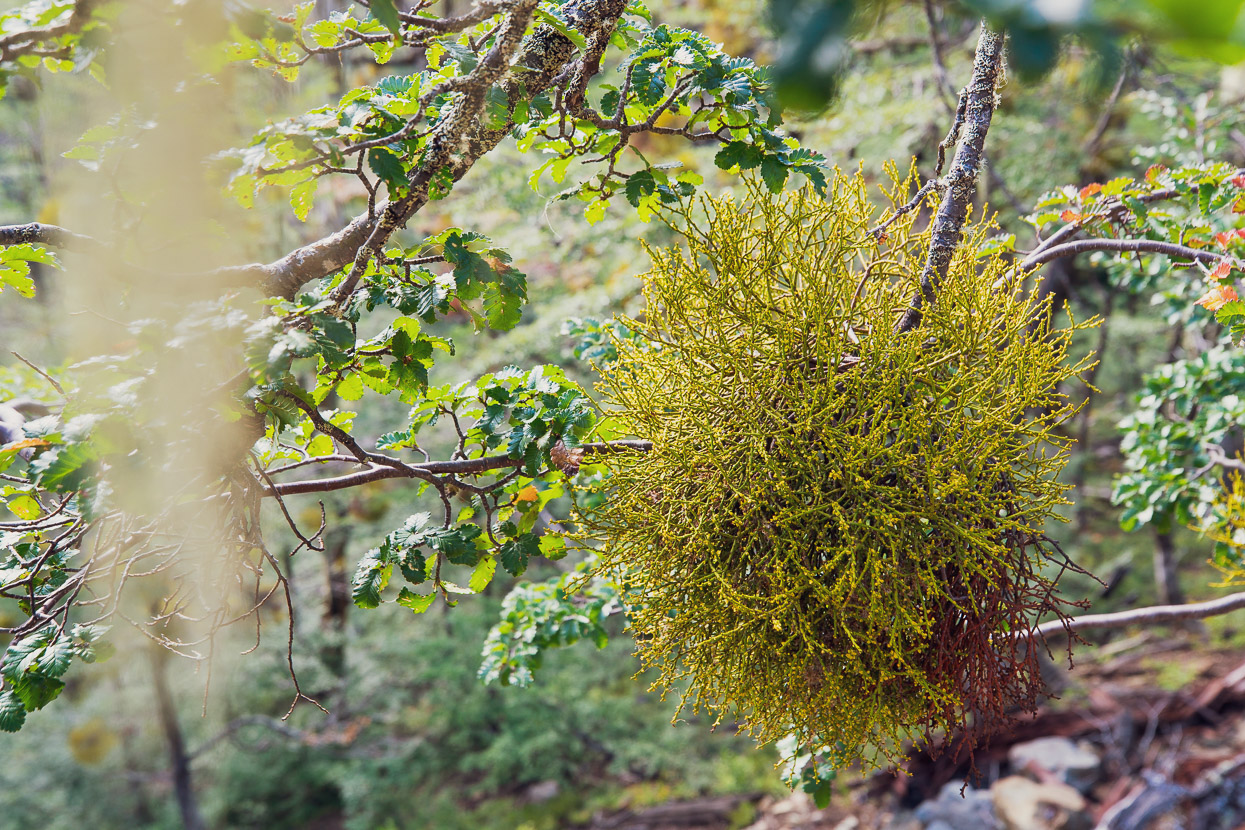
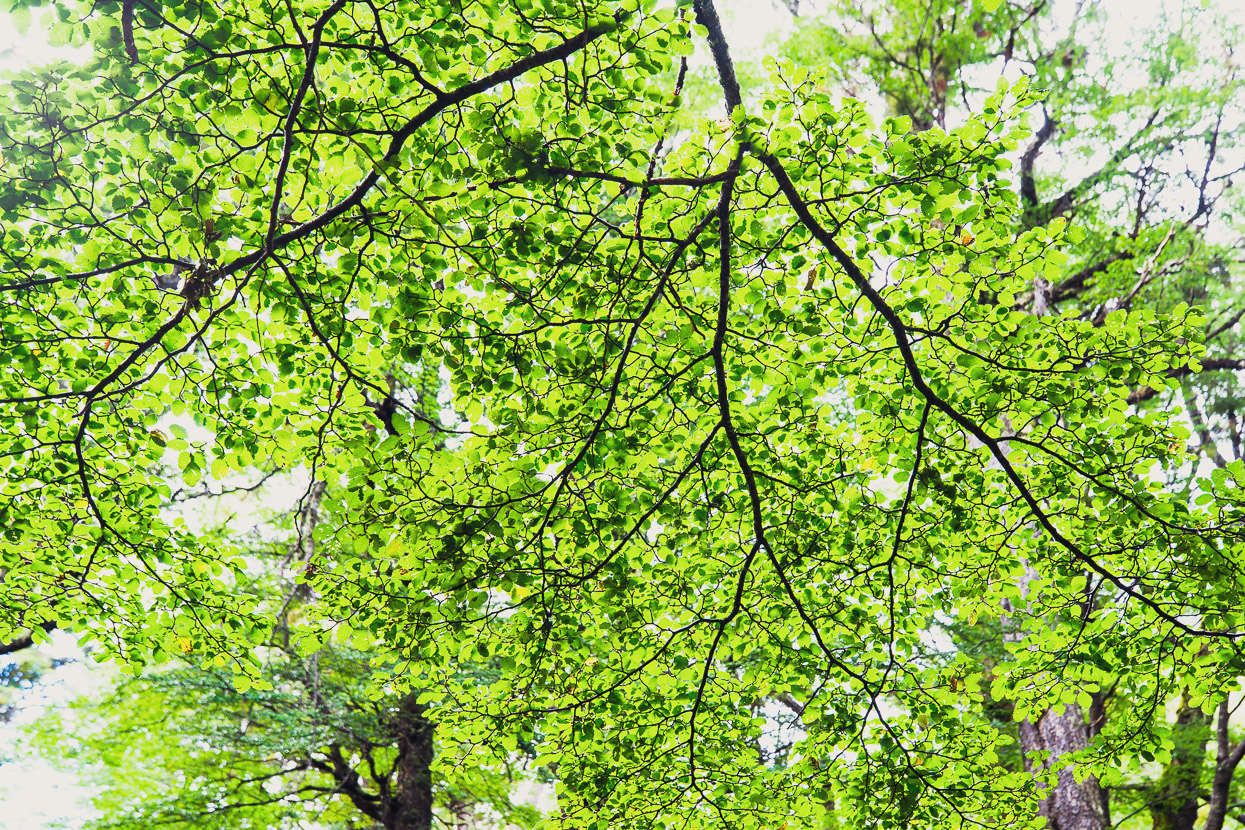
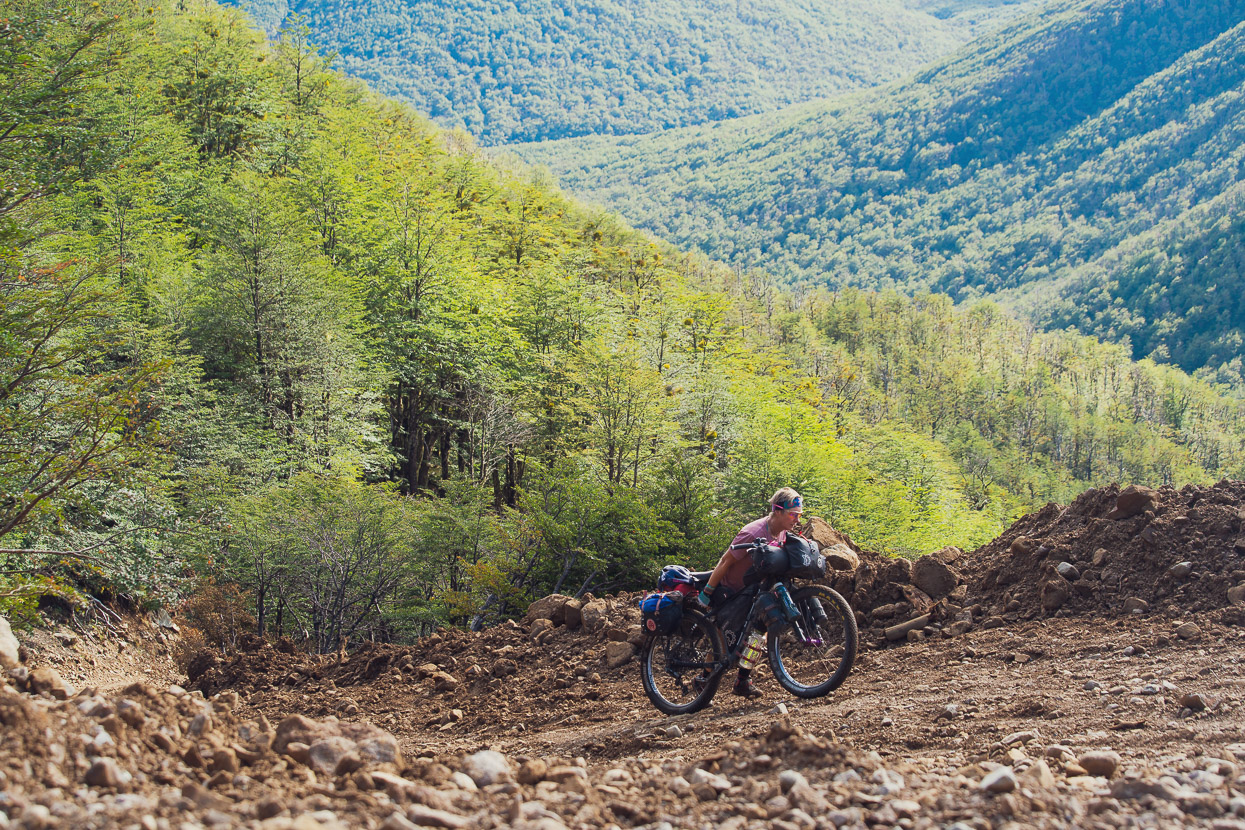
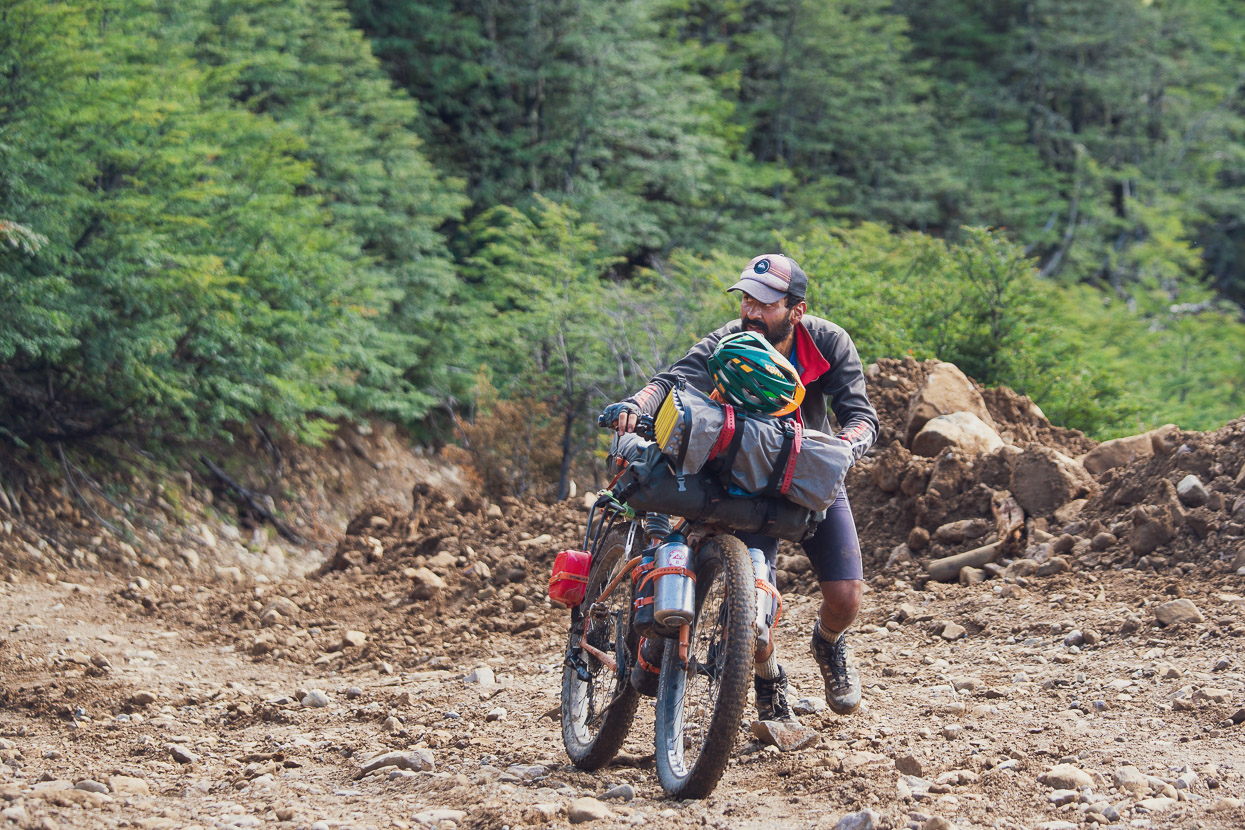
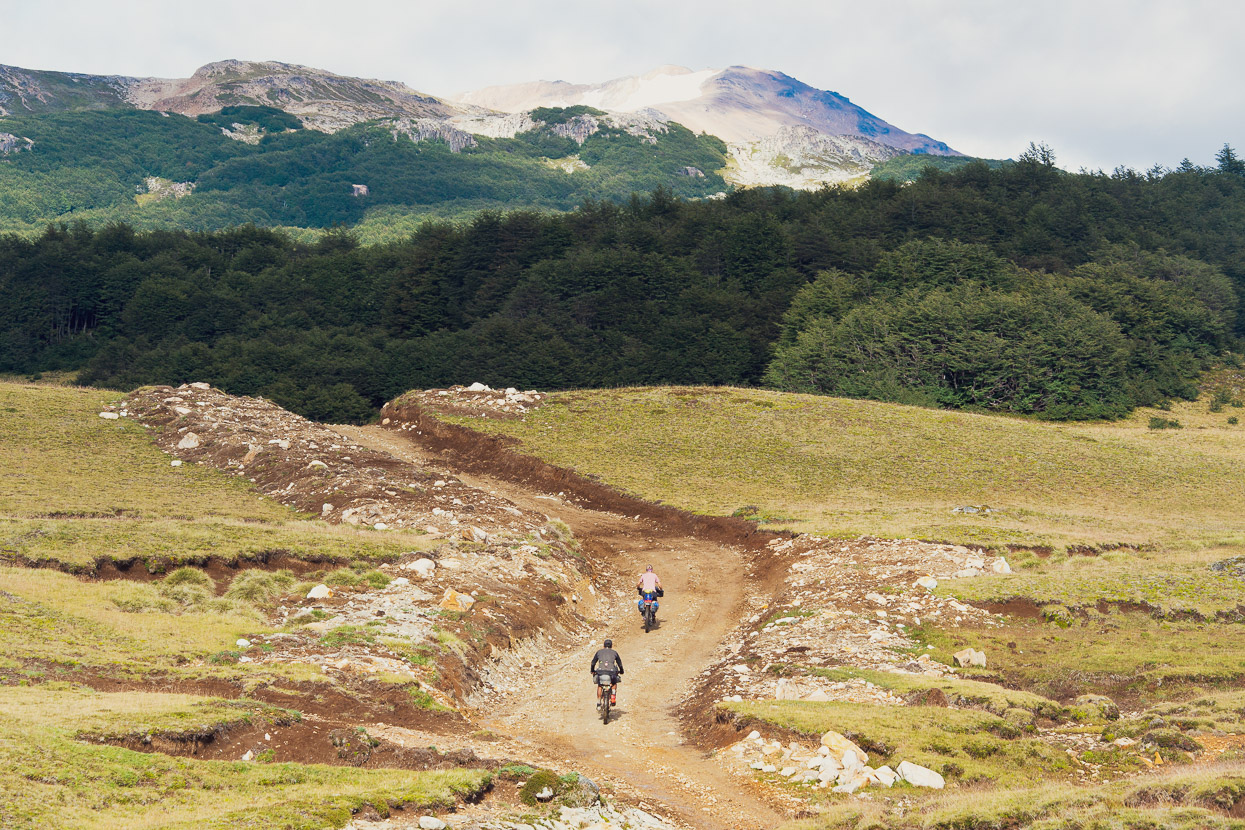
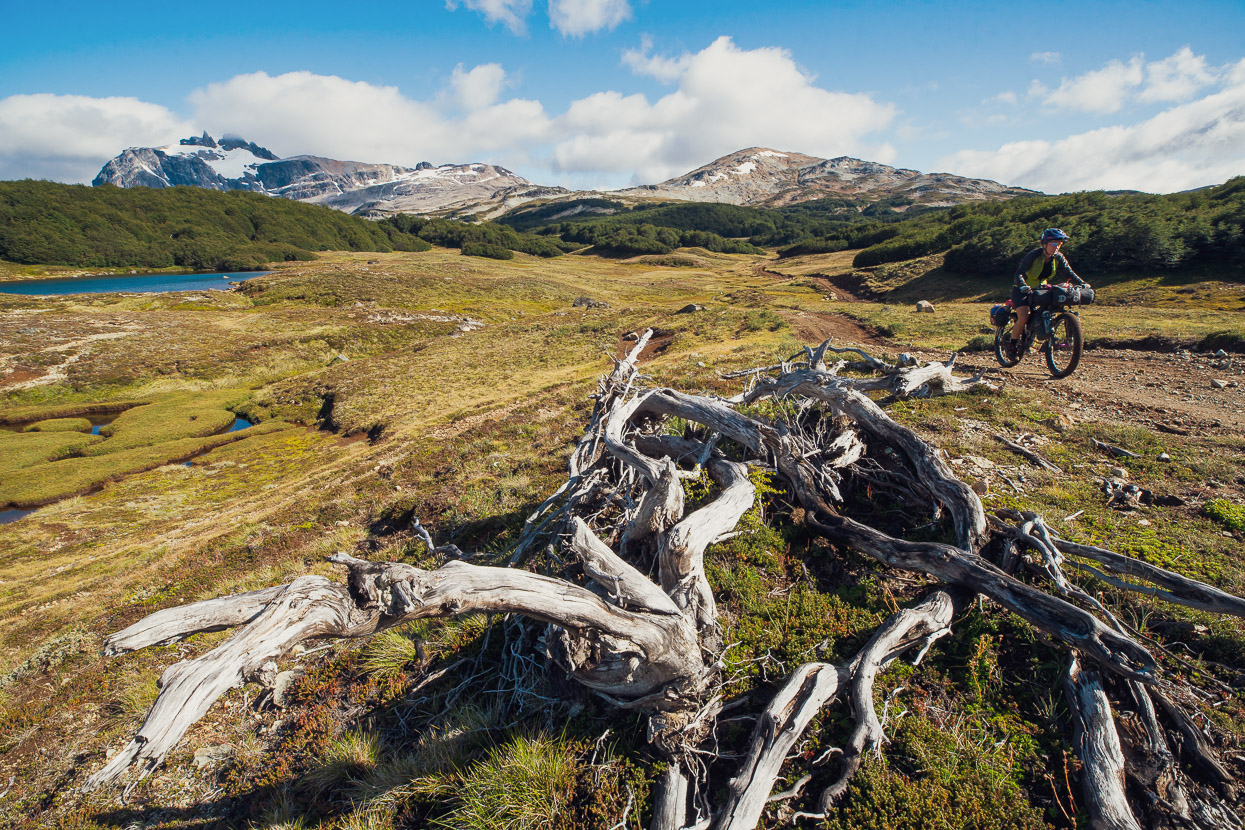
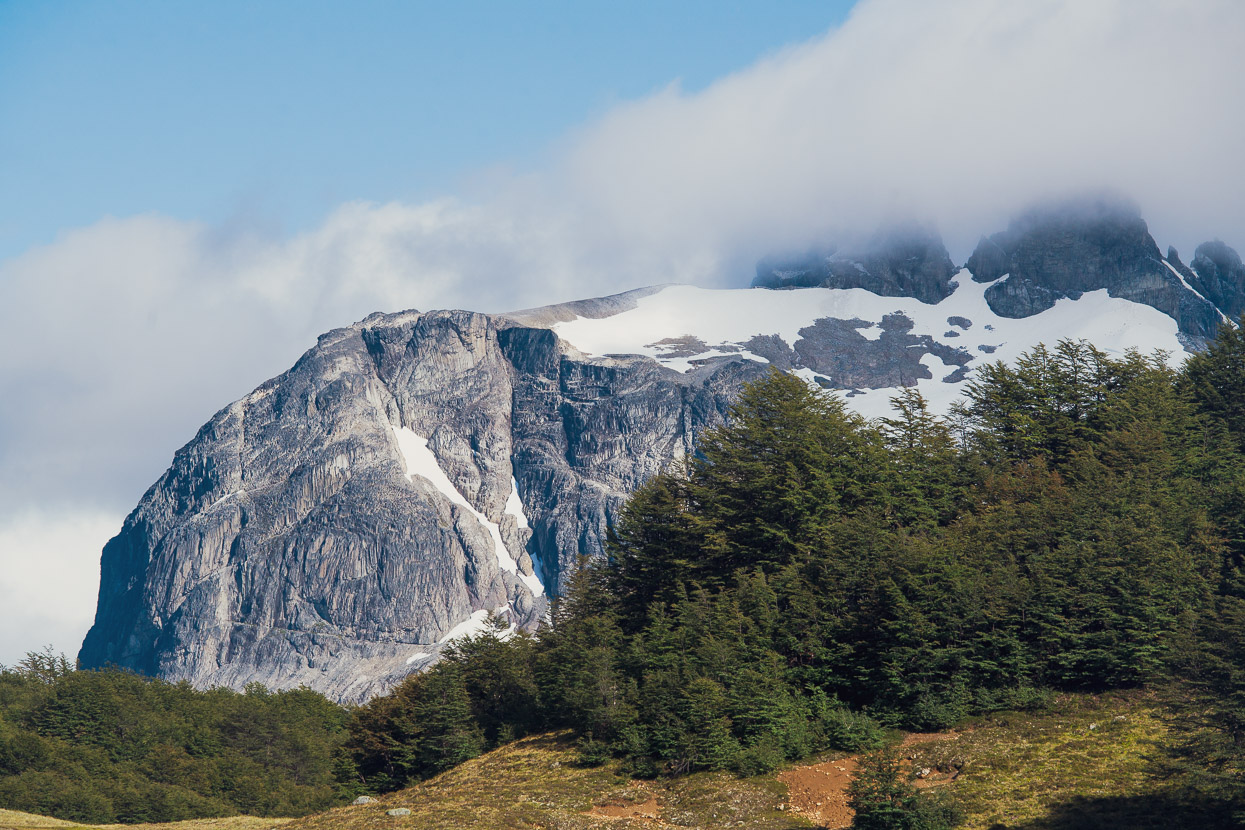
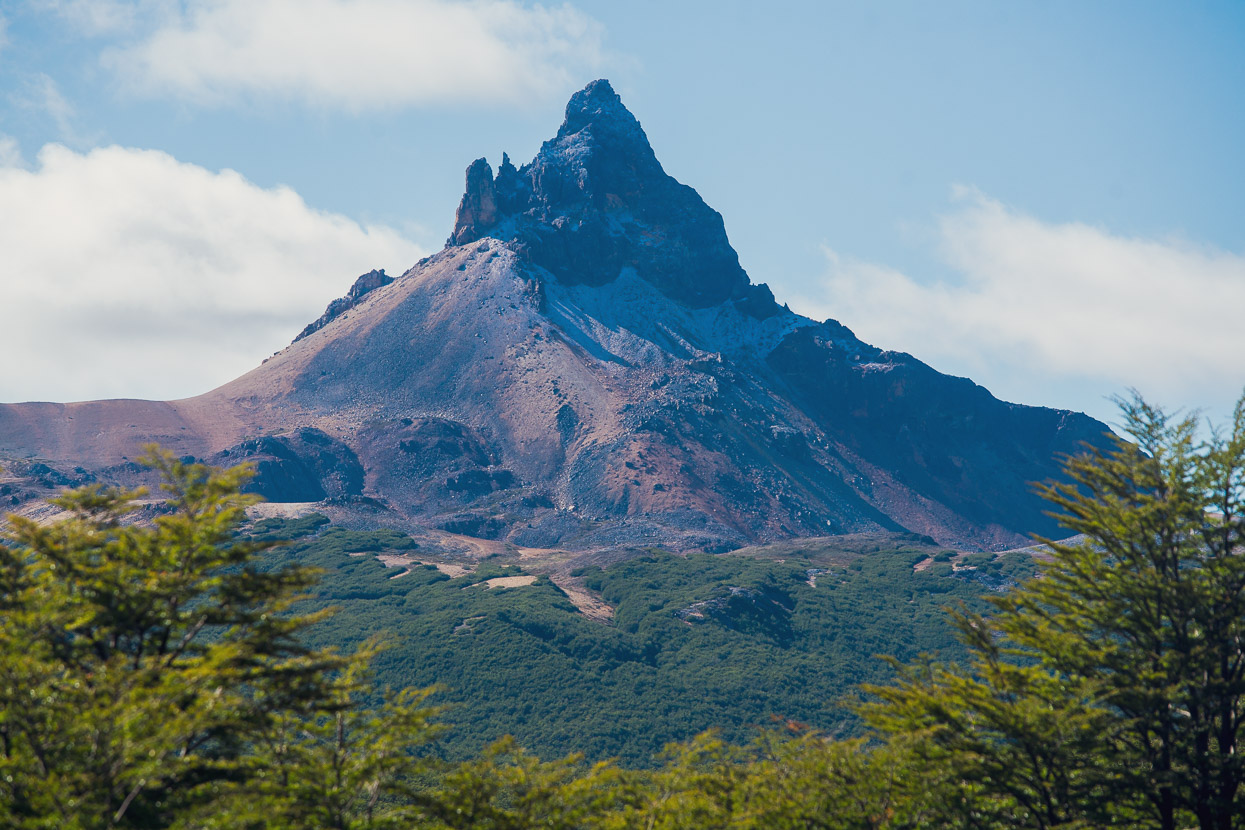
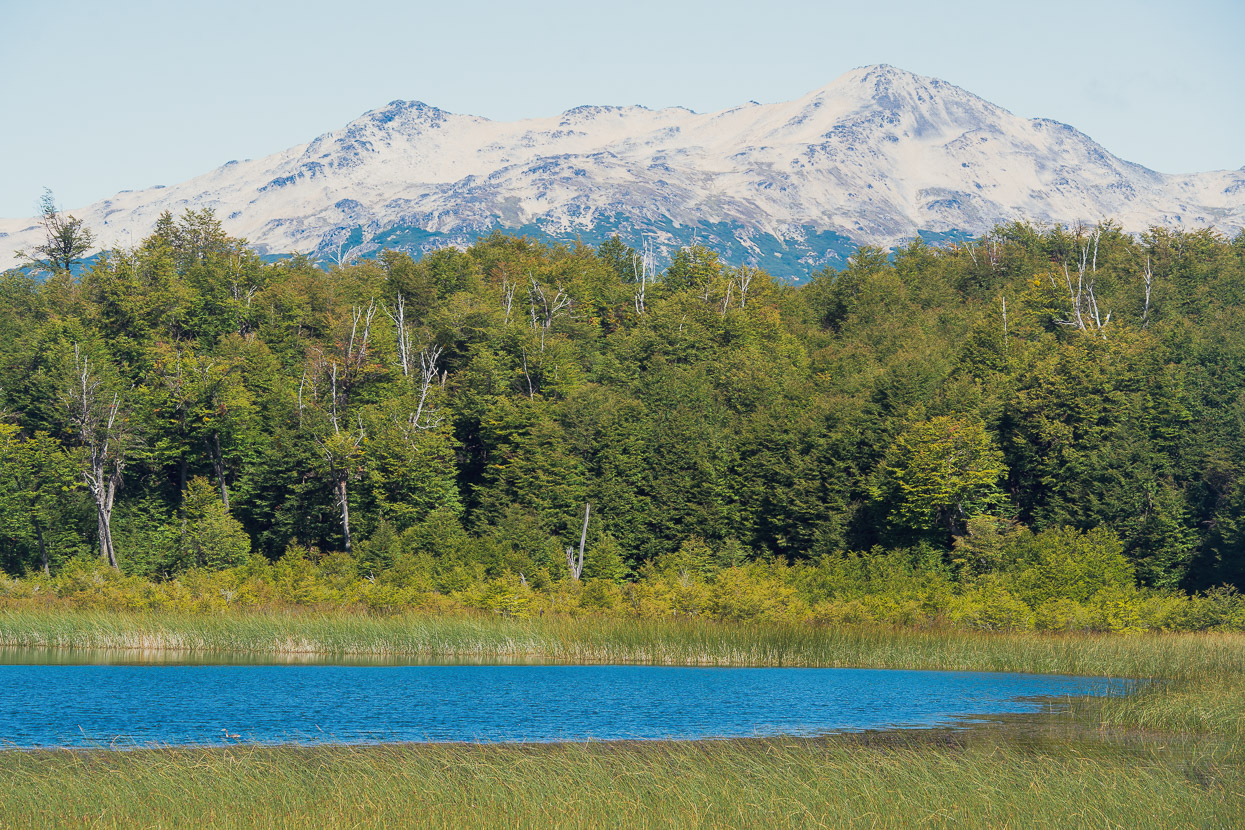
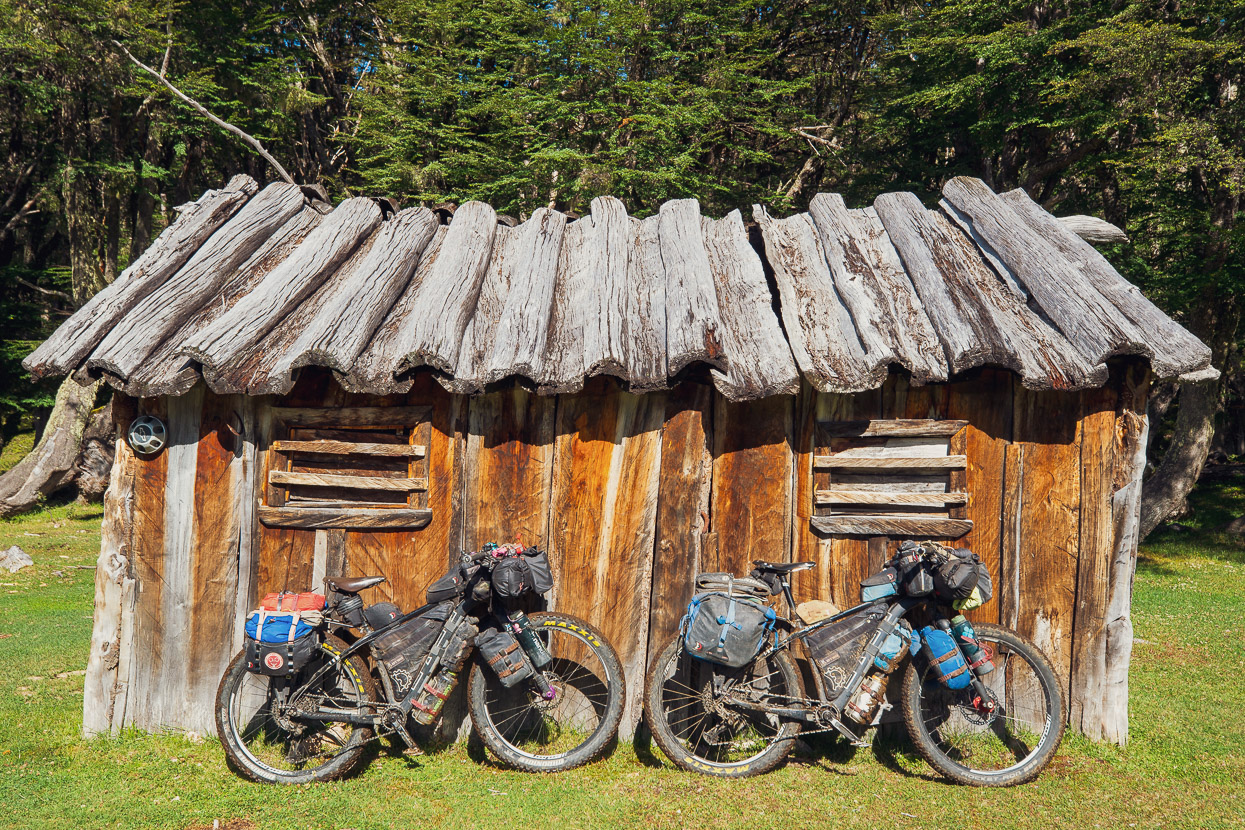
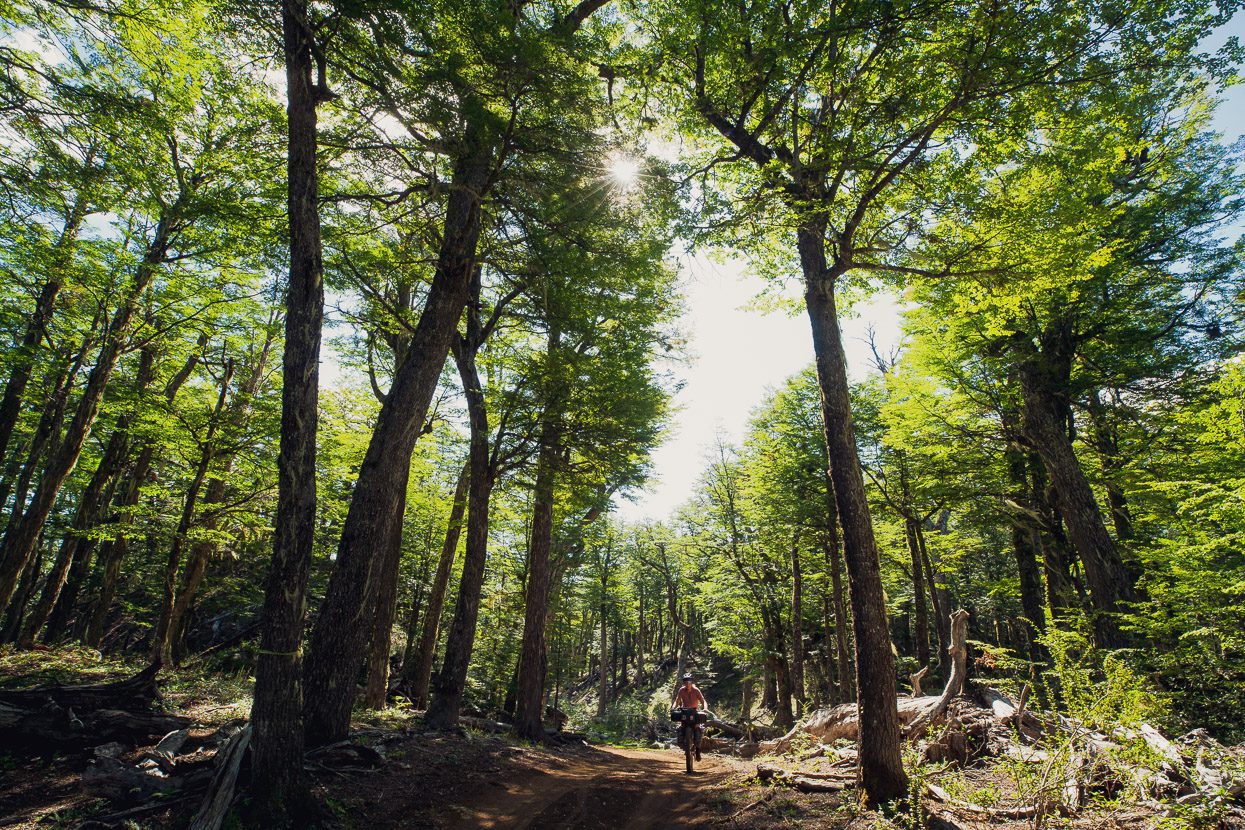
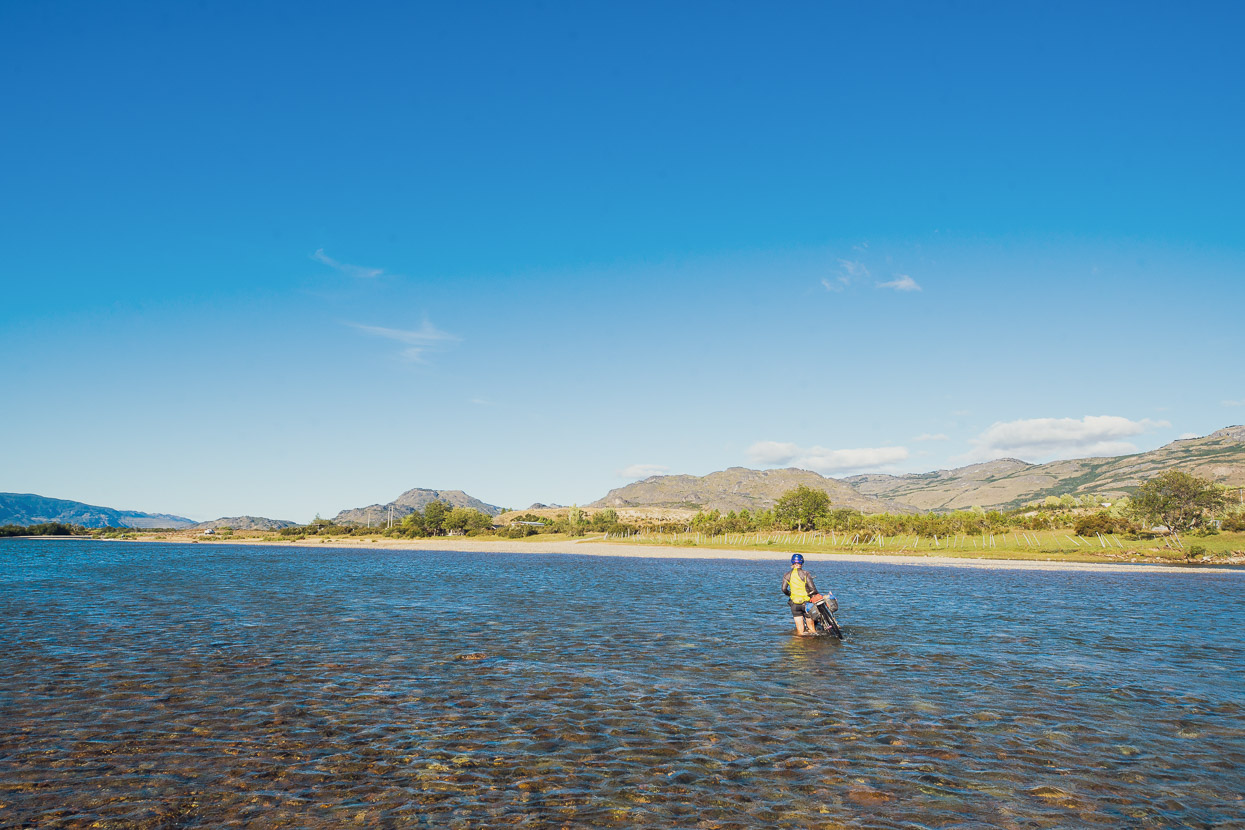
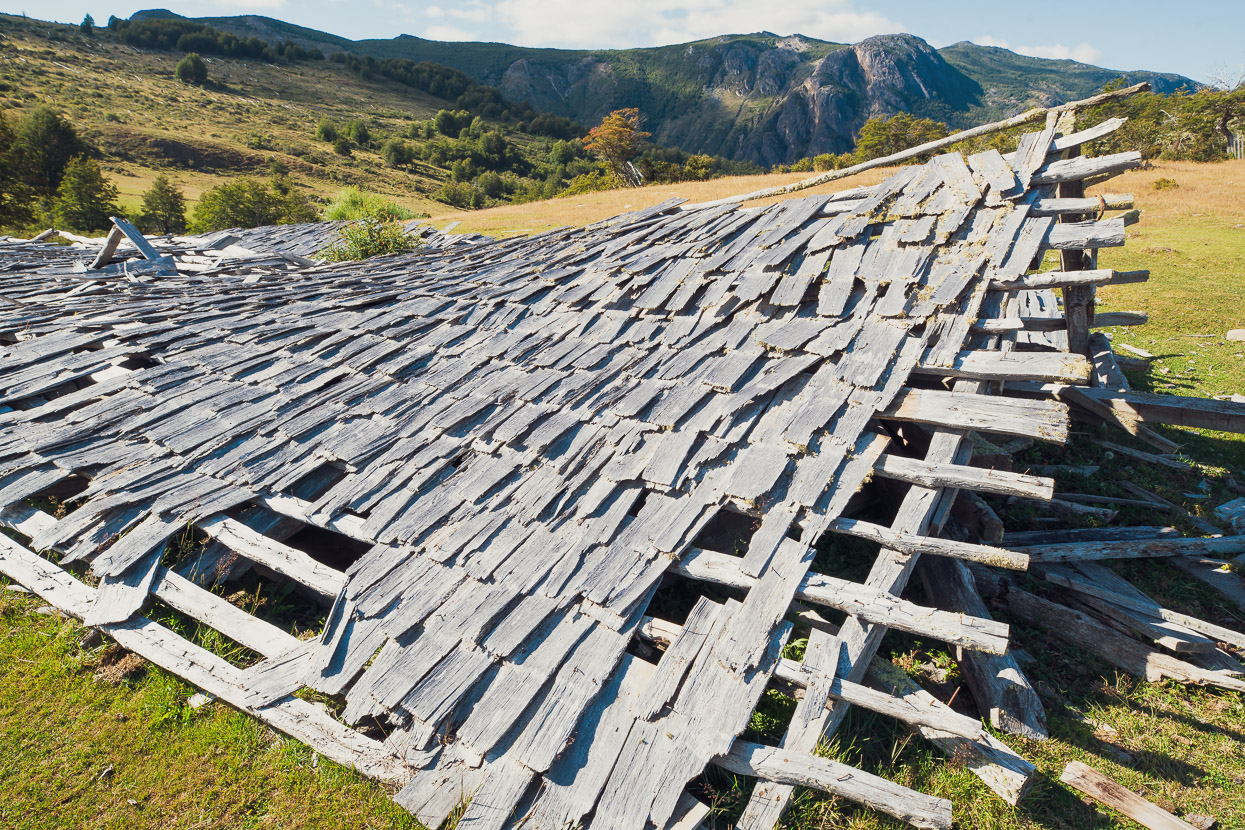
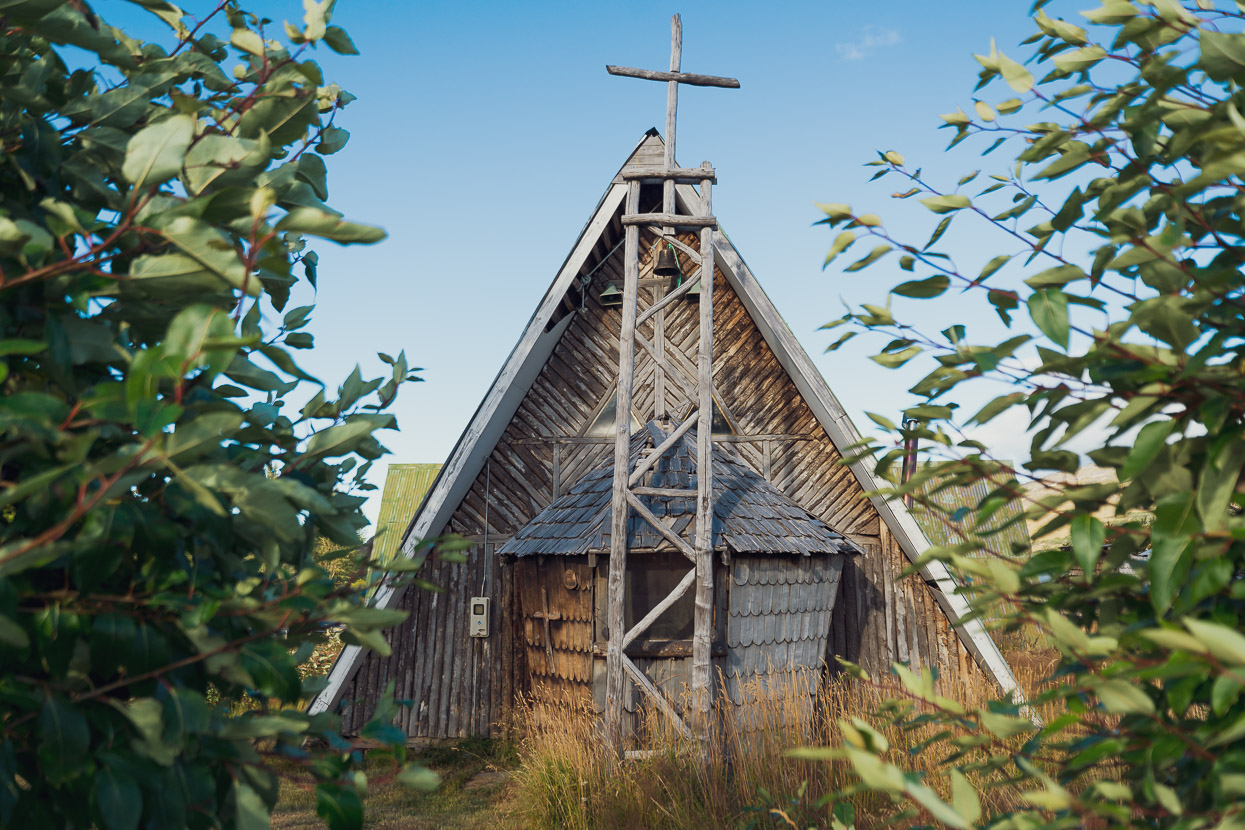
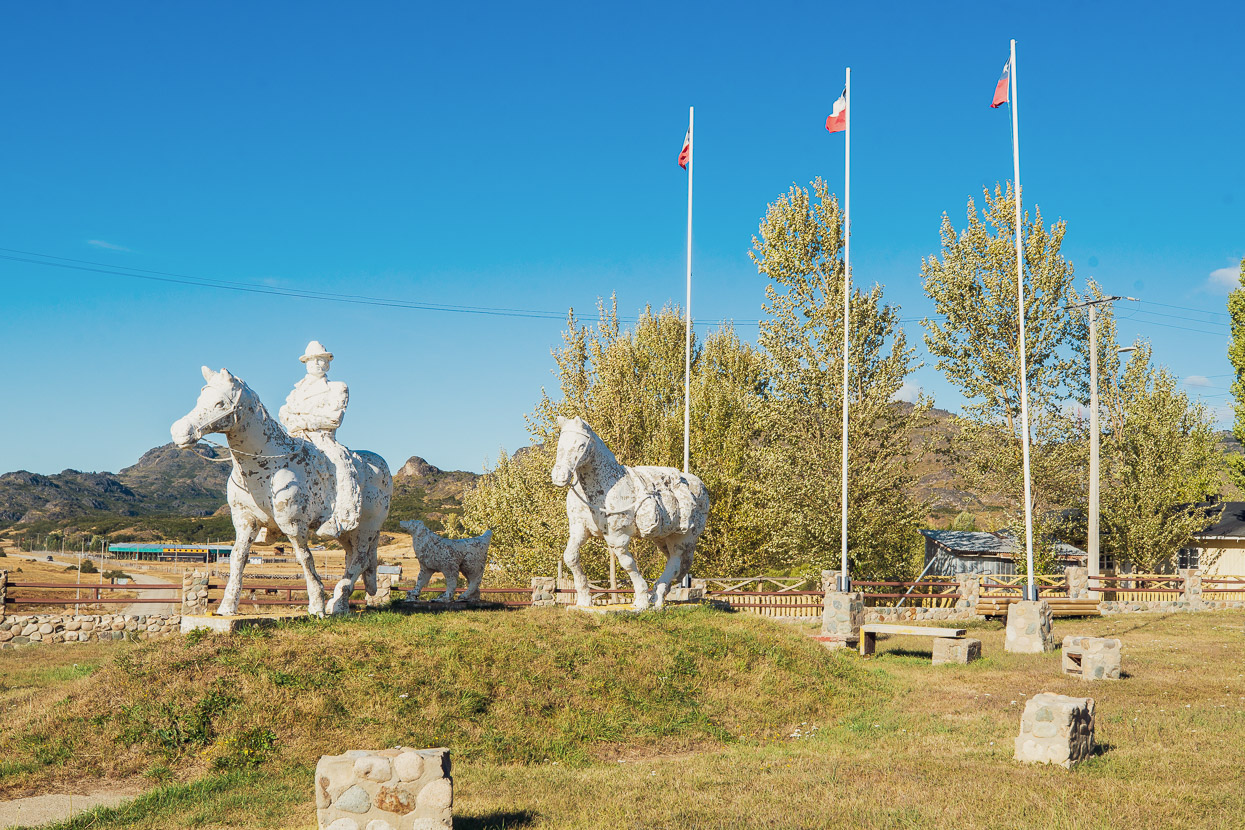
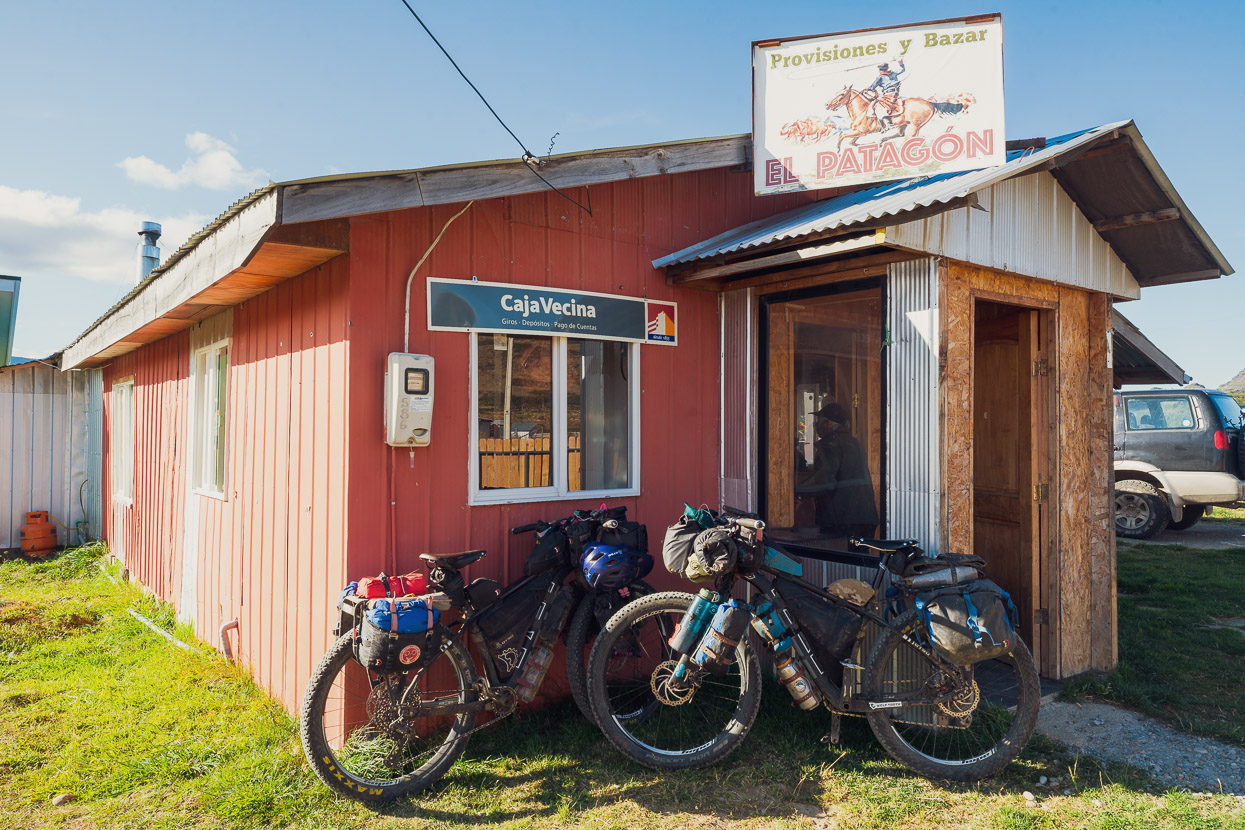
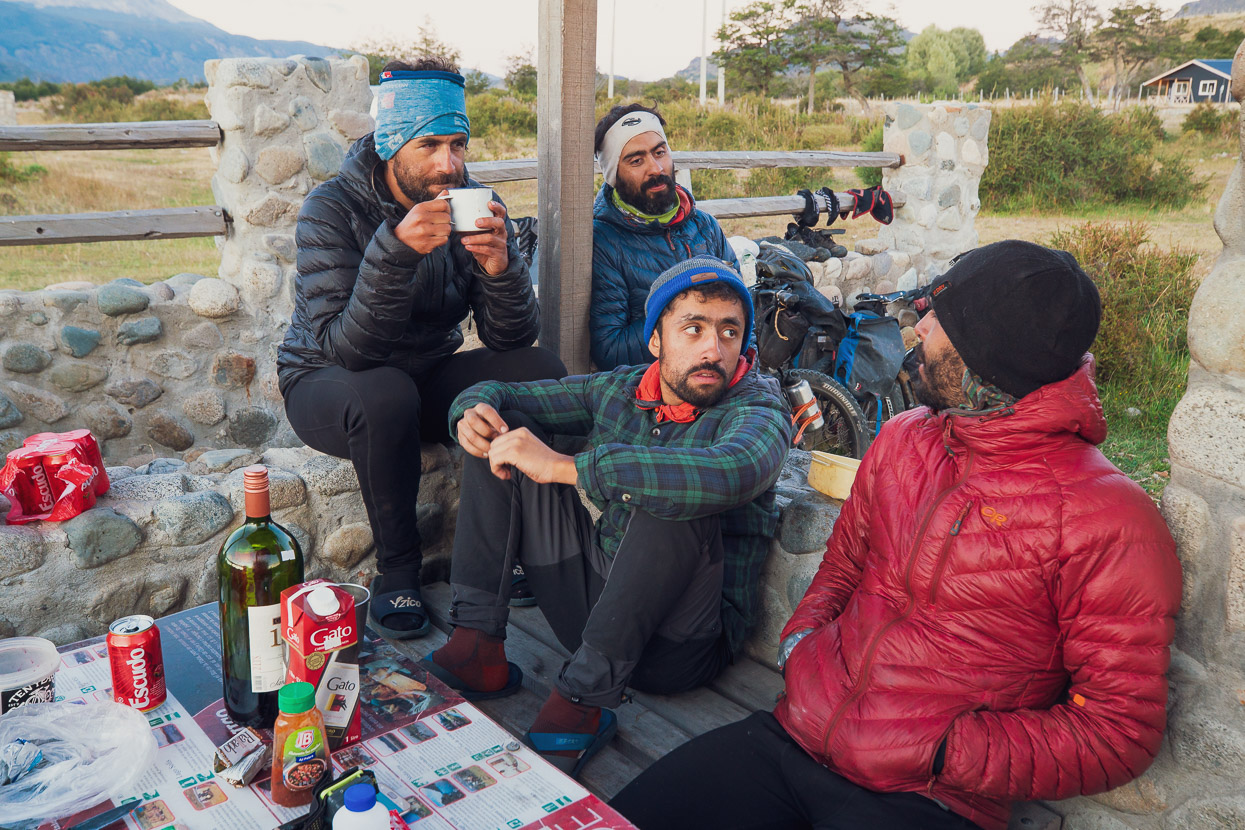
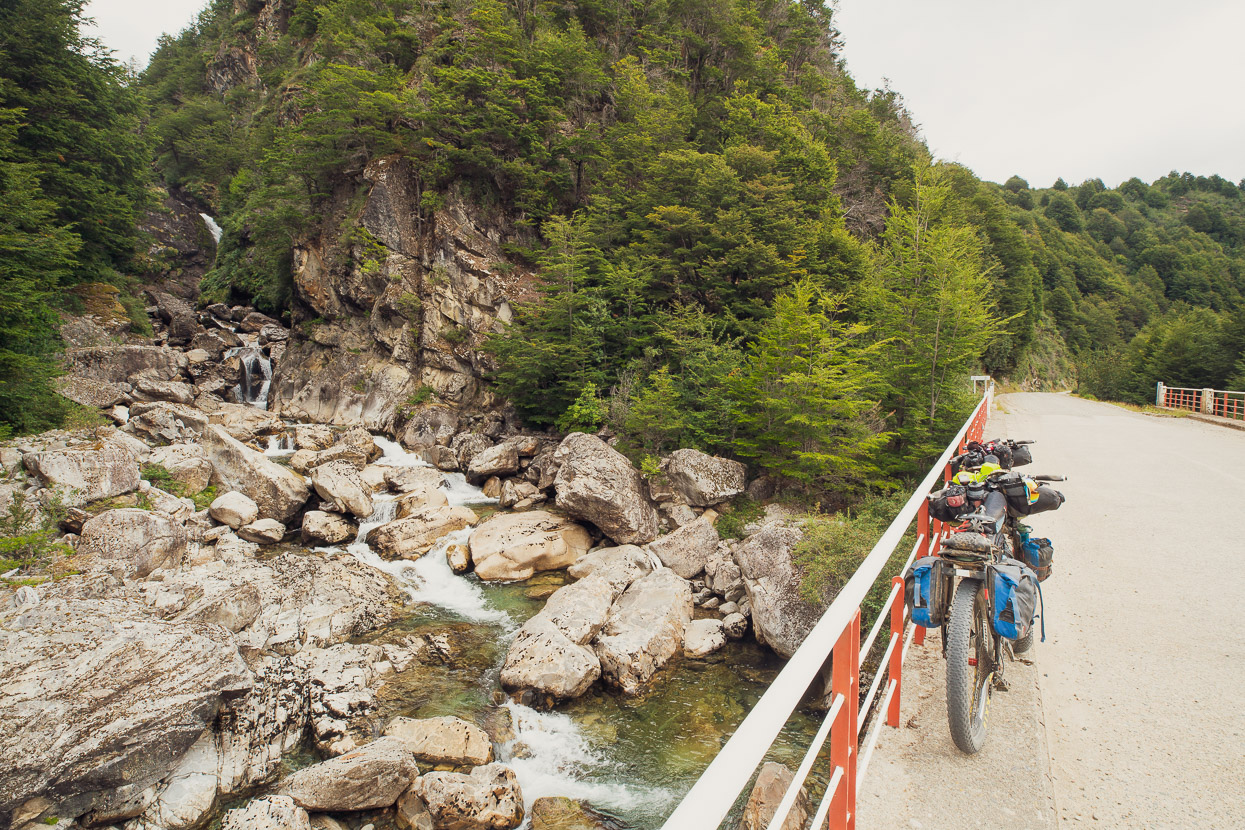
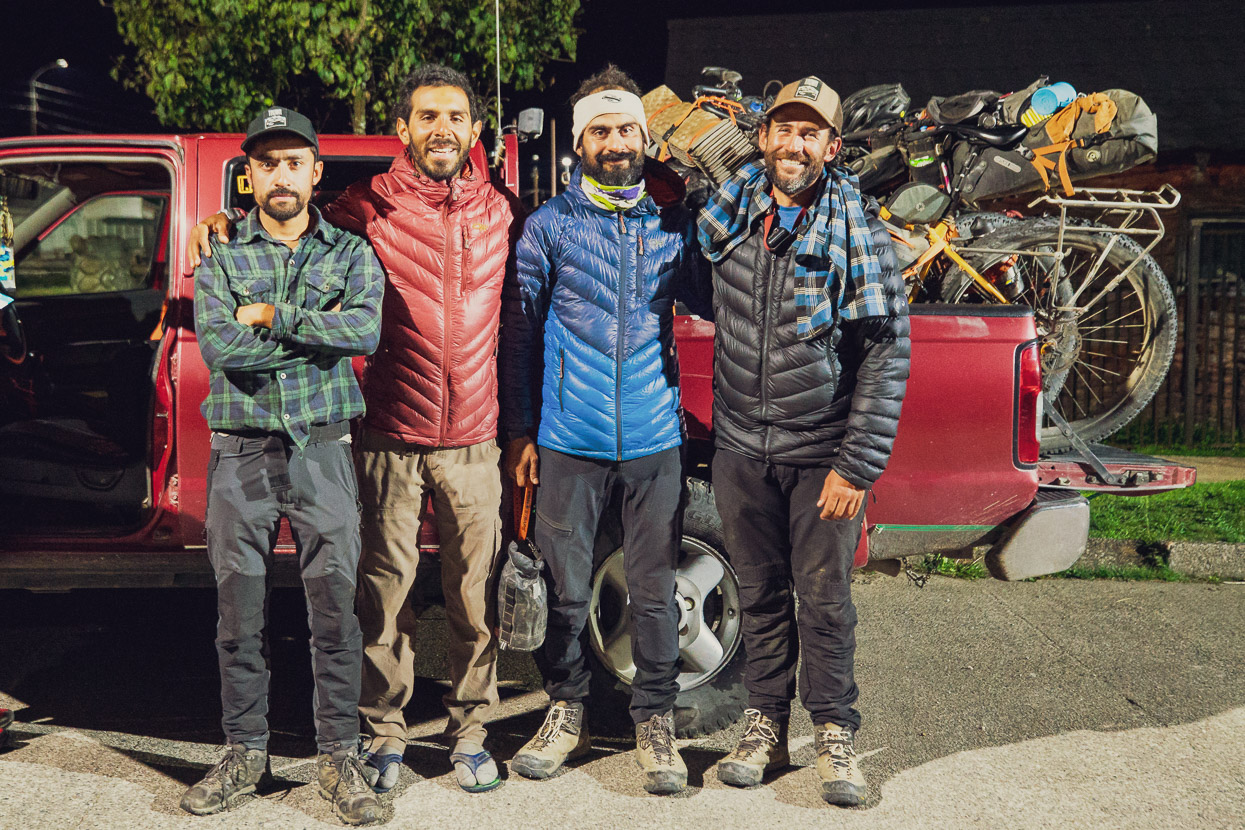
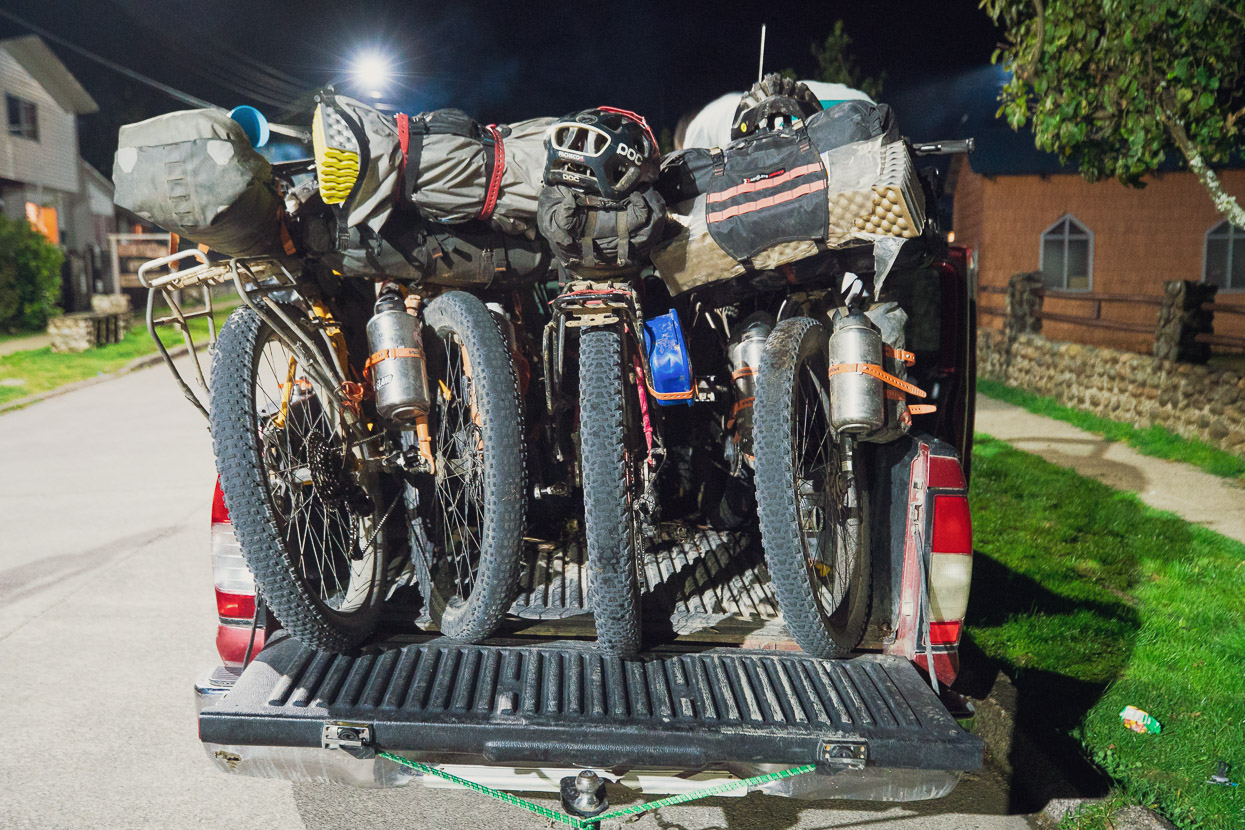
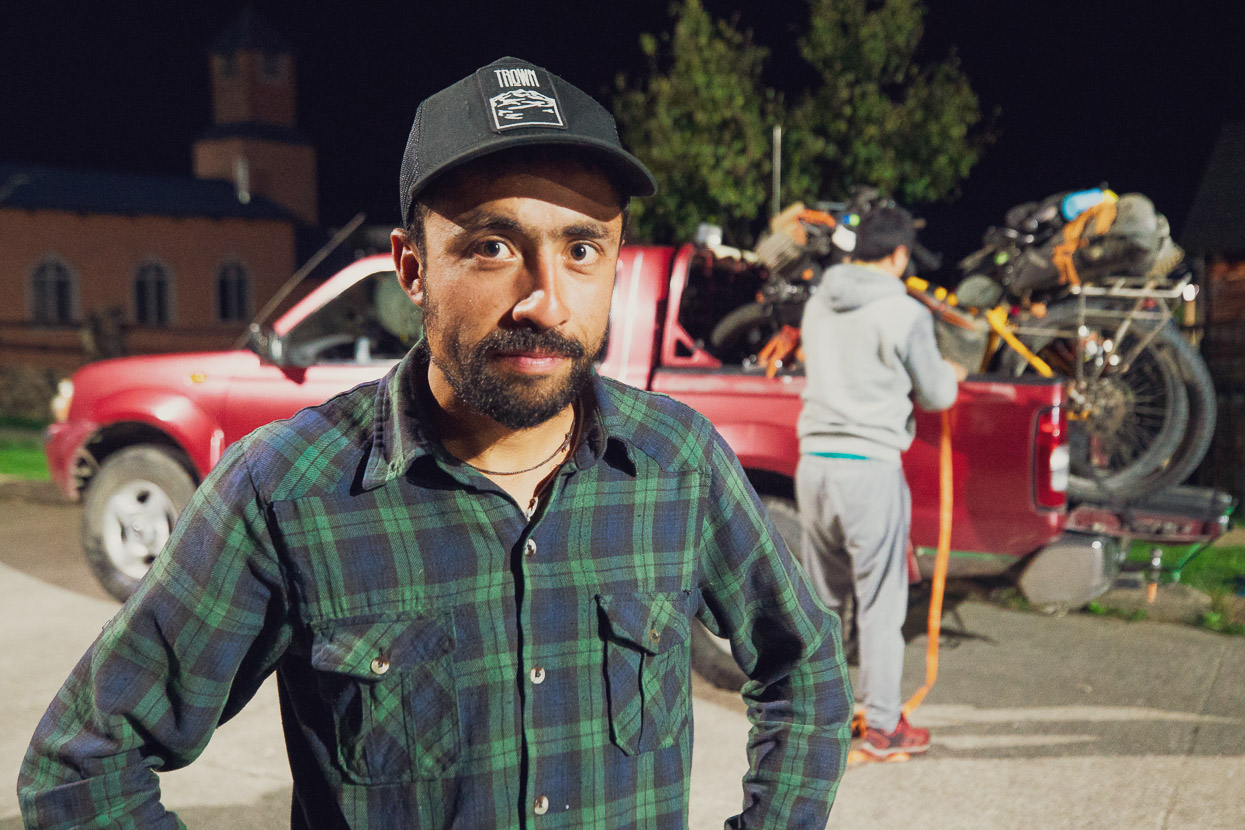
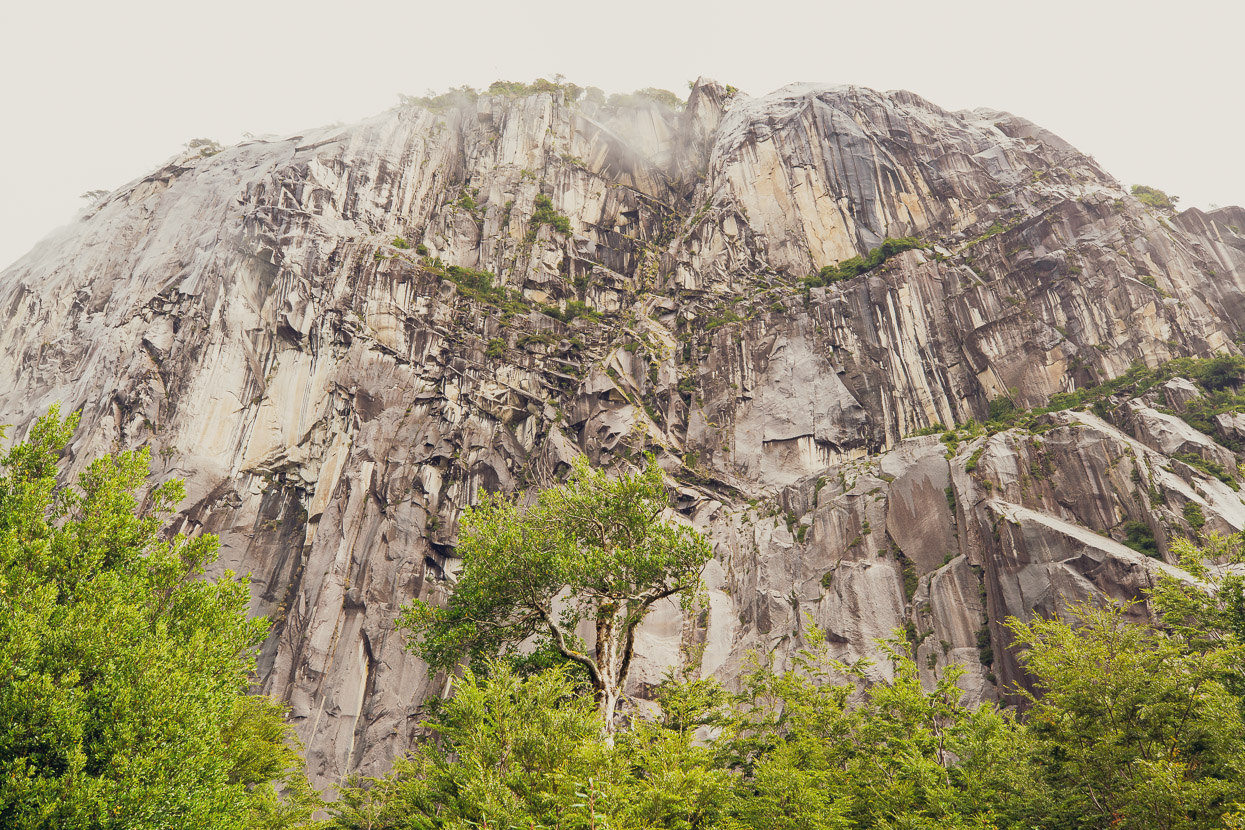
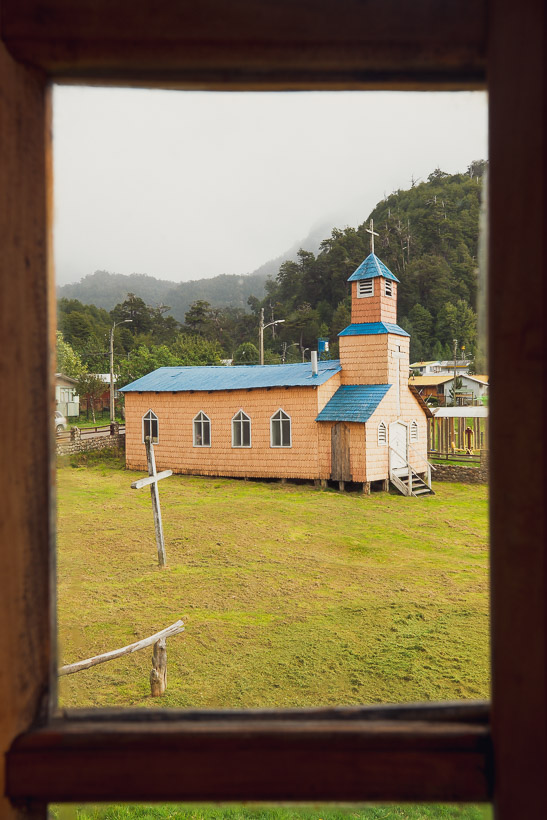
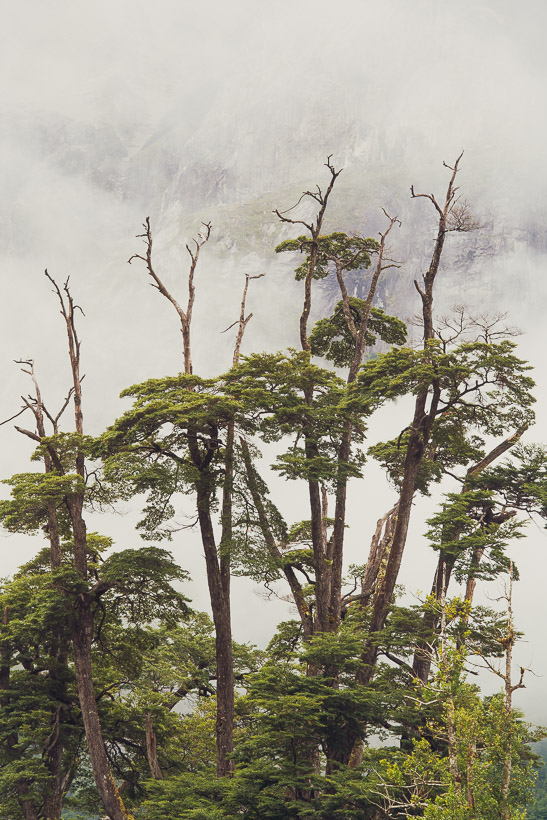
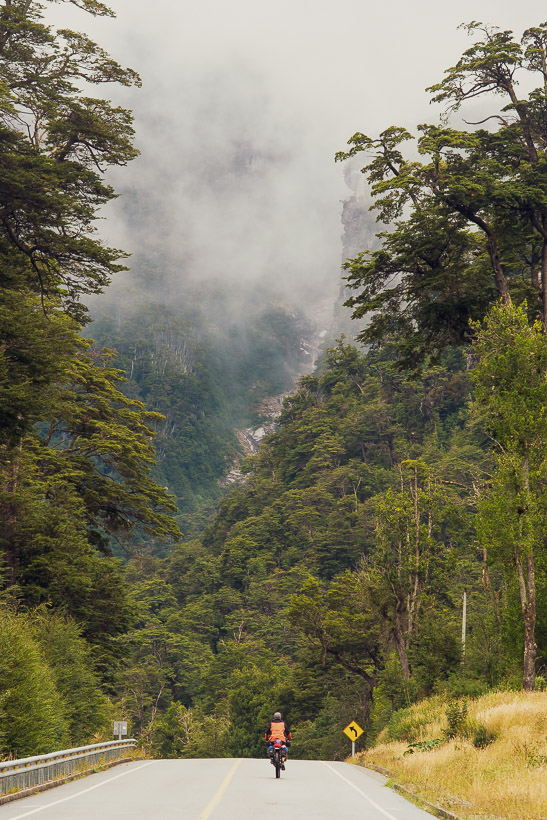
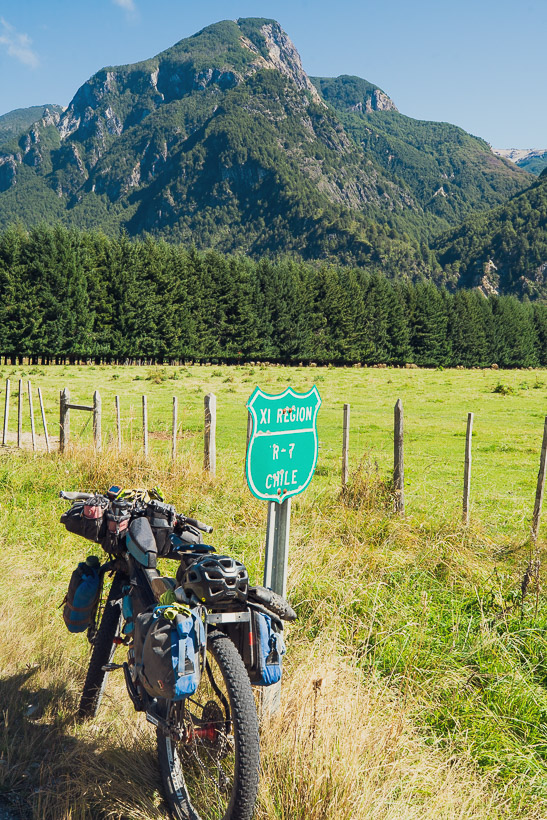
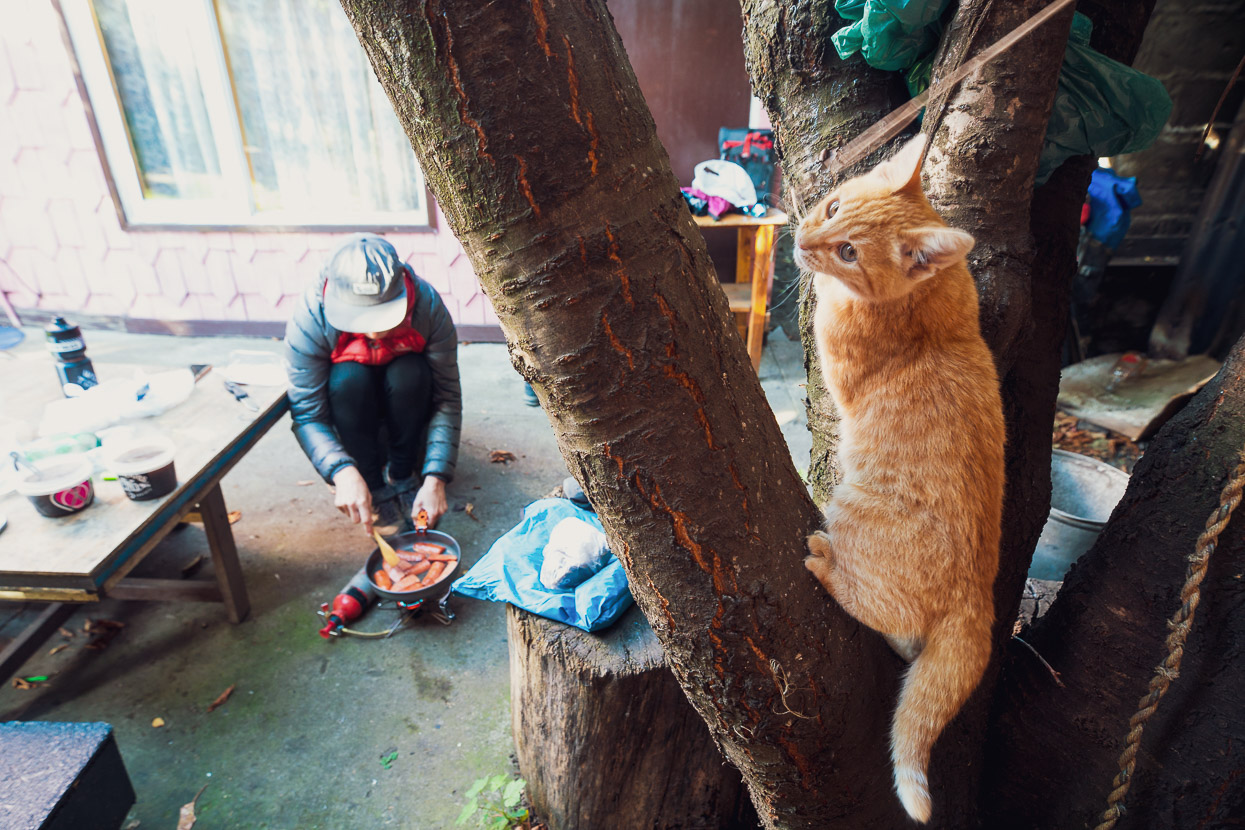
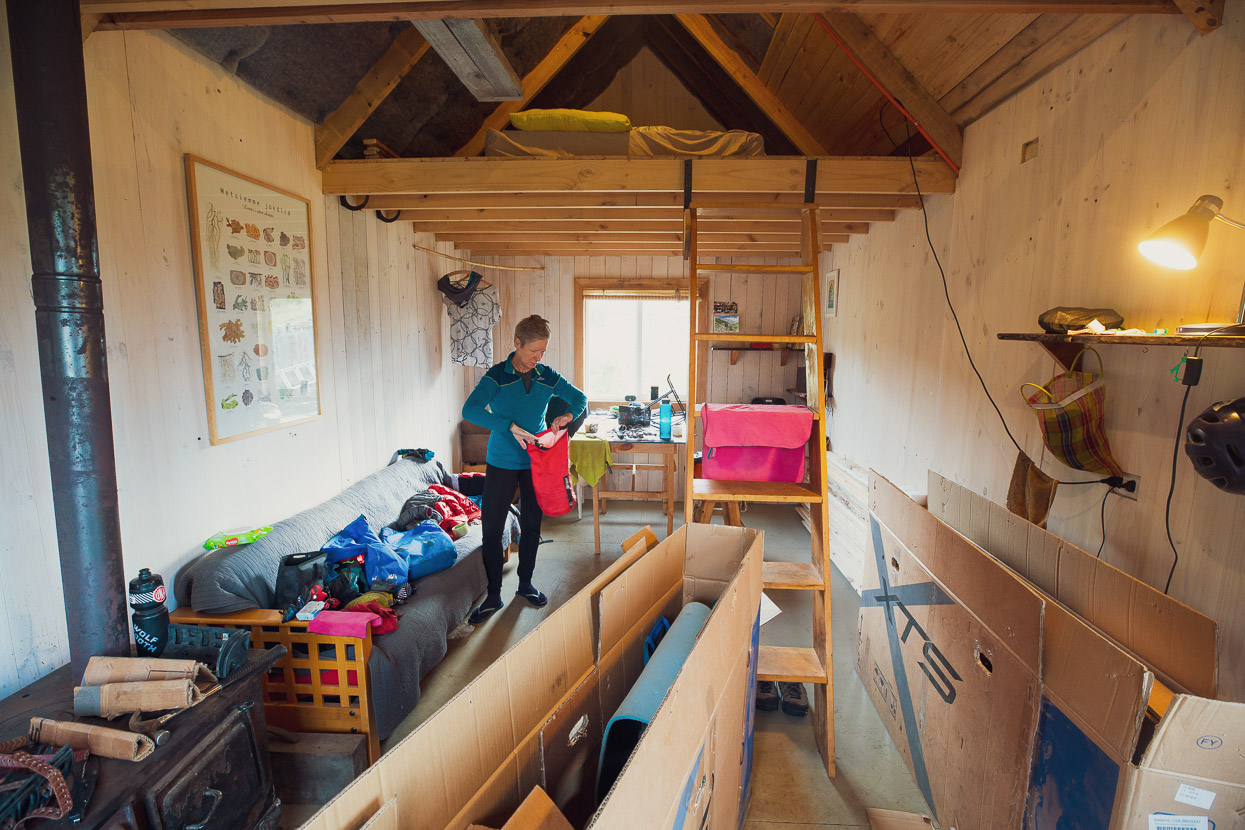
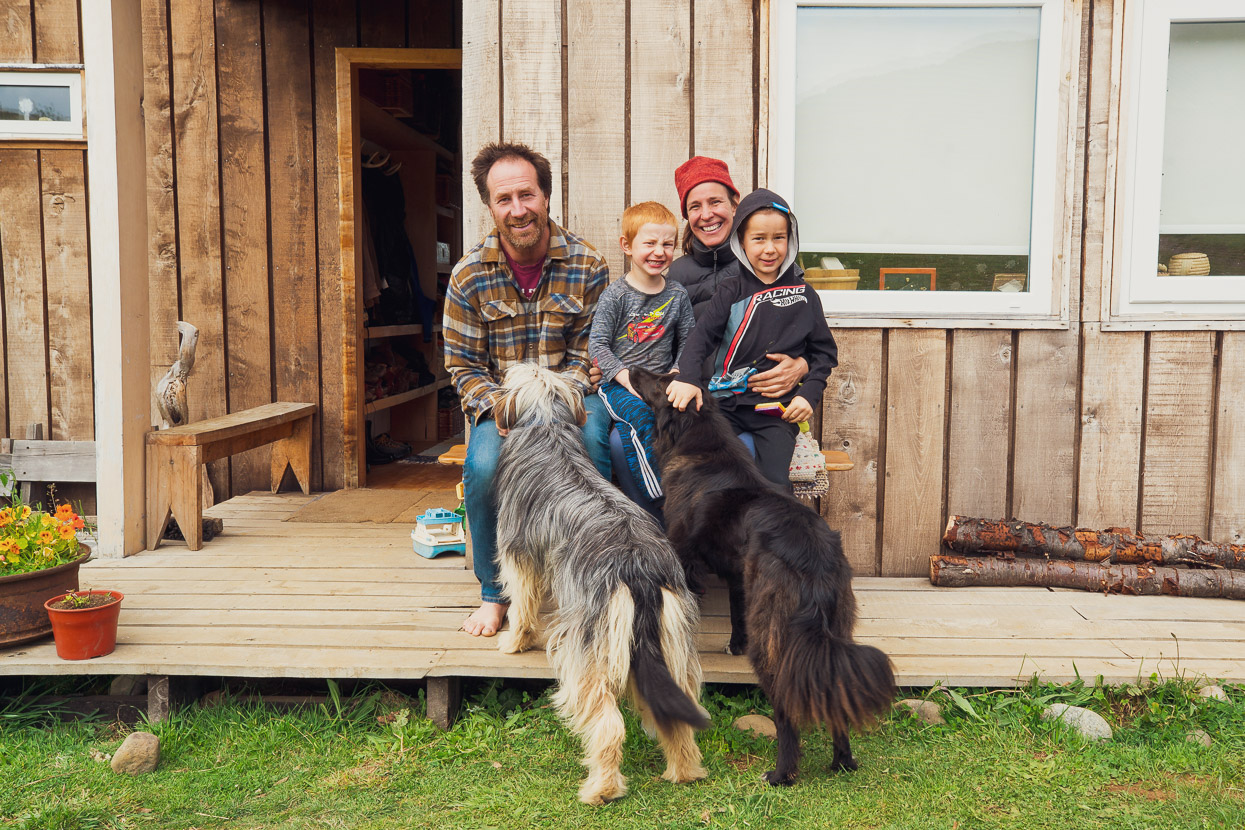

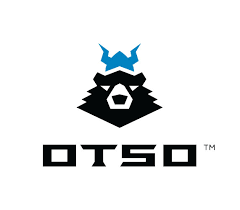


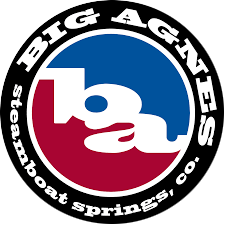
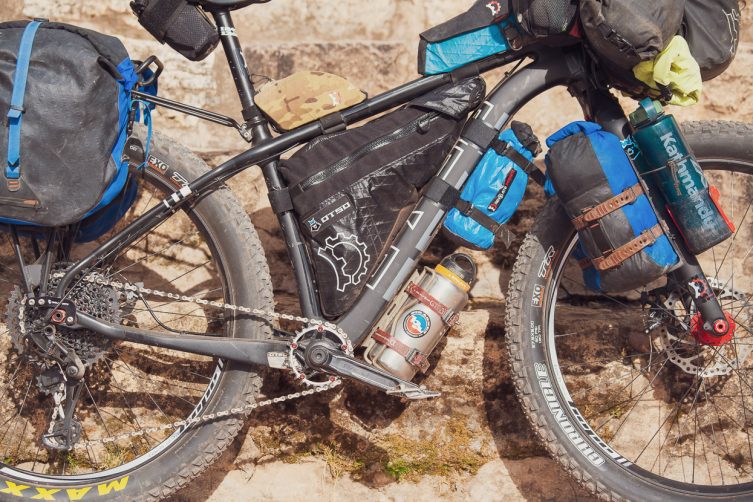
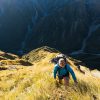
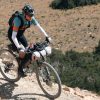
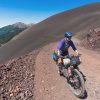

I spent 6 weeks in New Zealand in January/February 2006 traveling around the South Island. I was 18 years old, and when I returned home to Michigan I had been gone for nearly 7 months. Re-entry into the ‘real’ world can be challenging, especially after you experience something so epic and life-changing and then return home to find everything, and everyone, is exactly as you left it.
Thank you for taking us along on this journey with you. I’ve been living vicariously through you for a couple years now since finding your amazing photos on Instagram. You’ve done something that few are brave enough to attempt.
Patagonia looks amazing! Glad to have you home safe lovelies x
Welcome back to New Zealand. I thought it was a good decision coming home, just with winter coming on, and the situation being just so uncertain. I’d certainly forgotten you might have had some final finish line a long time ago with some of your epic exploring in Peru? Enjoy the hot showers and quiet lockdown life of New Zealand.
Thanks Richard – yes, we too wondered for a while there if we’d lost sight of the original ‘objective’. I guess when you do spend so long on the road you increase the odds of never reaching the destination because the world is never a stable place at the best of times! Who’d have guessed it would be a pandemic that shut us down though. I’d imagined an injury from a crash might do it, but not this!
Mark, like I’ve gushed a couple of times, you are an awesome photojournalist. I’d love to see you working on something more substantial that travel journalism. Good luck for the future. Please blog on with whatever comes next. Cheers.
Thanks so much Darryl – I do wish to apply my photography to some other projects, but it’s a difficult time for that! There will be more posts, once we’re allowed out to play again 😉 Keep well.
Will miss your missives from the road but glad you got home. Thanks for your great stories and photographs. You made us relive some of our days in South America.
Thanks Paul, appreciated!
I am sure you made the right decision in returning. I got back to NL some weeks ago from travelling in AU en Fiji for work. Saw situation change day by day. Locals suddenly start to treat you as an unwanted alien, that was really weird. Regarding your journey and goals, the cliche is true. Started following your trip only recently and by back reading all episodes felt you have lived a priveliged life biking through wonderful sceneries. And about the goal, well you always need something left to wish for. After all, chile is only 1 flight away..
This is true – it’s good to have something to already look forward to once this situation settles down. Thanks for the words Kees, and yes we do feel privileged to have done what we have. So many millions never have that choice or option. I hope we can get back to doing what we love and delivering more inspiring posts for you 😉
Hey you two, just got around to reading this. I am happy that you got to ride this bit of Patagonia as a finale, it was one of my favorites with the tough hike-a-bikes and the amazing last downhill through the beech tree forest (not so much with the wet feet).
What a trip you have had! I still remember being inspired to push for our own trip when I was reading your blog from my desk in Germany and I am glad and proud that I got to be a small part of yours in the end.
I was lucky to finish my trip as planned just before the crisis escalated at the expense of skipping a few major parts of Chile that I would have liked to cycle. Just like you, I came to feel that what matters is the experience and not making it from A to B but I still think you should be very proud that you never broke your line of bike travel and even more so that you never chose the fast and shitty way just to get there. I am excited to see what you get up to next.
I also loved the photos again and comparing them with my own I hope that you, Mark, never get up to something more substantial than travel journalism 😉
Thanks Felix! Yeah we do feel that we left Patagonia on a good note. That last week was fantastic, especially with the company of the Colombians to share the road with. That made it all the more special. I’m also really glad that we teamed up with you for Seis Miles. That entire experience remains searingly powerful in my mind and brings a lot of emotions when I think about it. It was a precious few weeks indeed.
The camera is not getting much use at the moment, but I’m looking forward to using it again when the inspiration comes and the moment is right. Being home is nice, but we already miss the lifestyle of the road. Looking forward to restrictions lifting and being able to take to the trails in NZ. I hope we can share the trail with you again sometime too.
I’ll definitely miss seeing Highlux Photo appear in my inbox. Glad you were able to work your way home and hopefully the Austral isn’t all paved by the time you get back 🙂
Hi Mark and Hana, I only discovered your blog during lockdown and it has been a highlight of the past month for me. Your photography and writing as I’ve followed you from Deadhorse, Alaska, has enabled me to go on the most amazing vicariously enjoyable adventure. Thank you so much. A contribution to the beer fund is winging its way to you. I’m looking forward to a book(s) in due course!
Hi Susi, thanks so much for the message (and also for your donation). It’s really nice to hear that our blog has provided interest and entertainment during these strange times! Even for us now looking back at earlier posts it’s very valuable thing to have as SO much has happened during the past nearly four years. One remarkable experience after another really. Hopefully we can get back there before too long and continue with the story!
Cheers.
I’ve been following the two of you since you started and very much enjoyed traveling vicariously. Wishing you well in your home environs and looking forward to more posts in the future. Be well!
Thanks Zack!